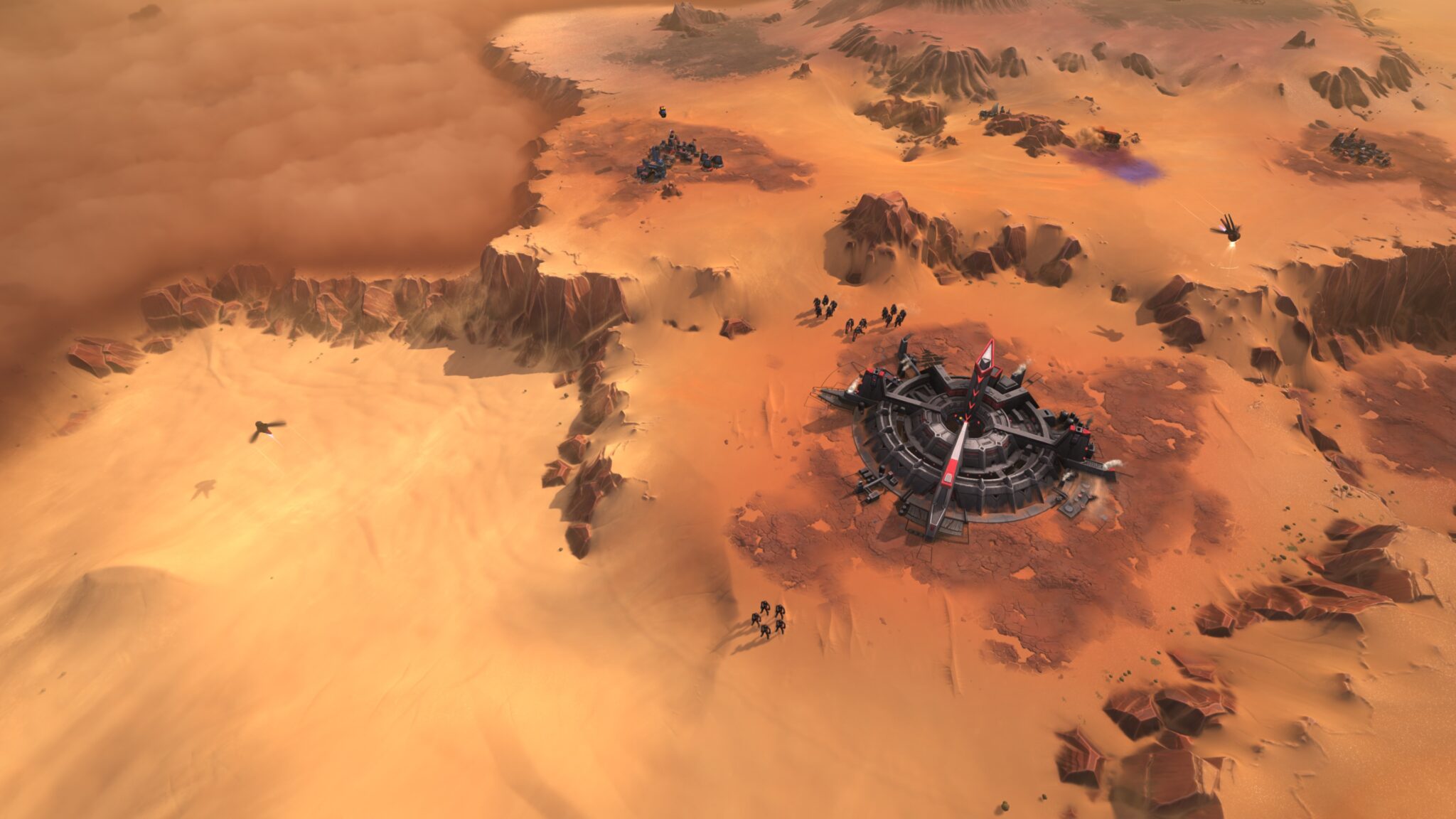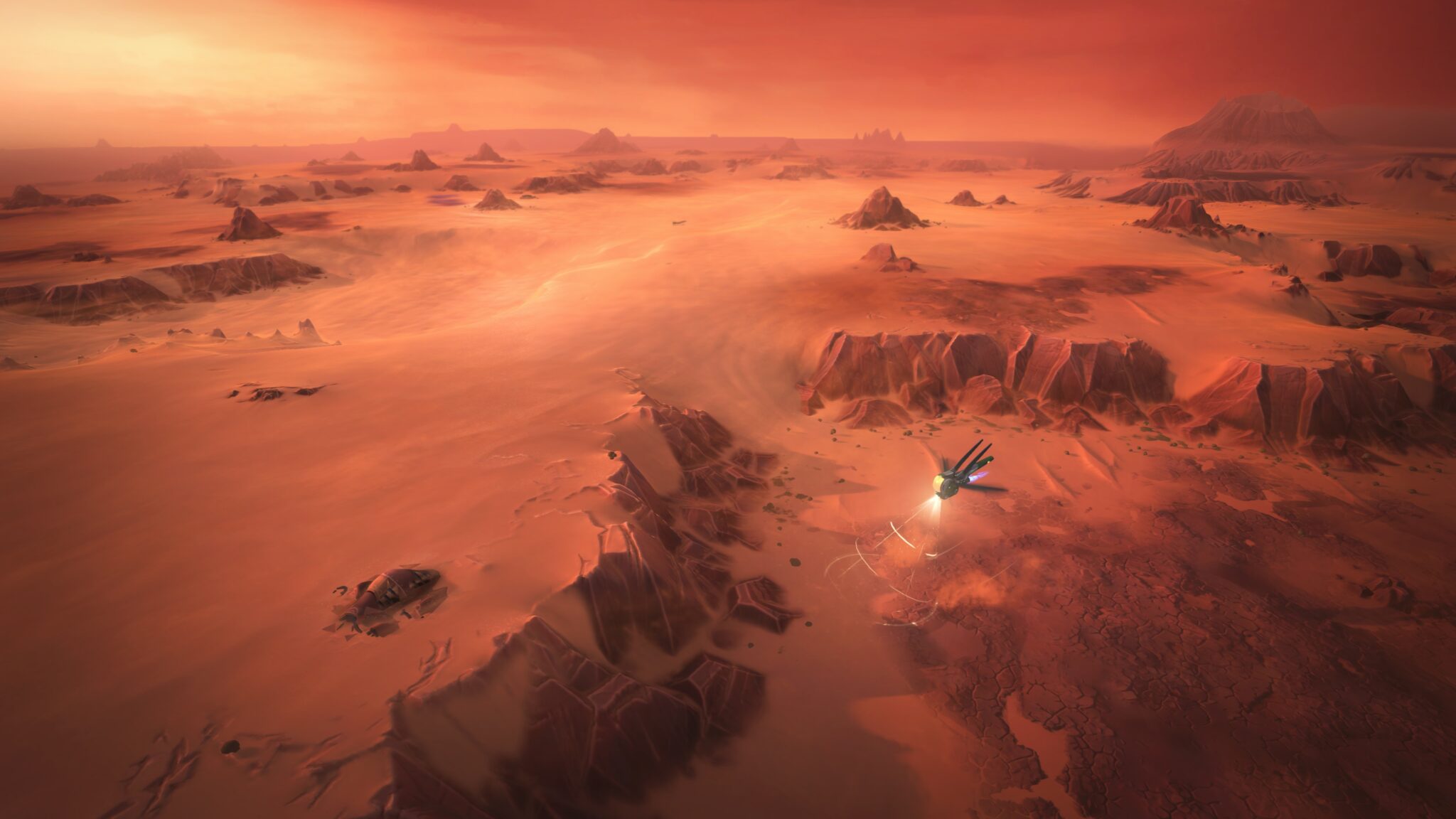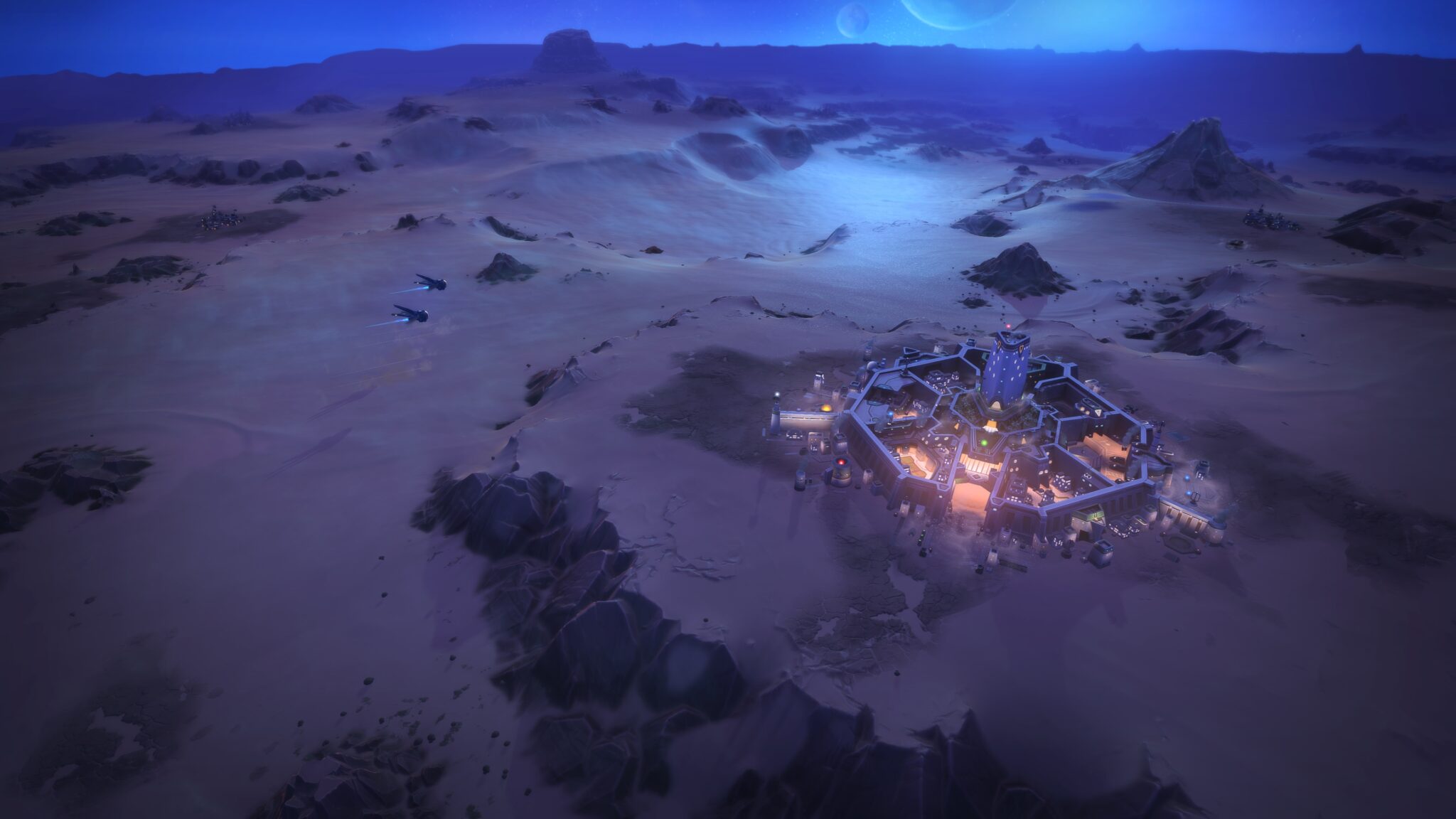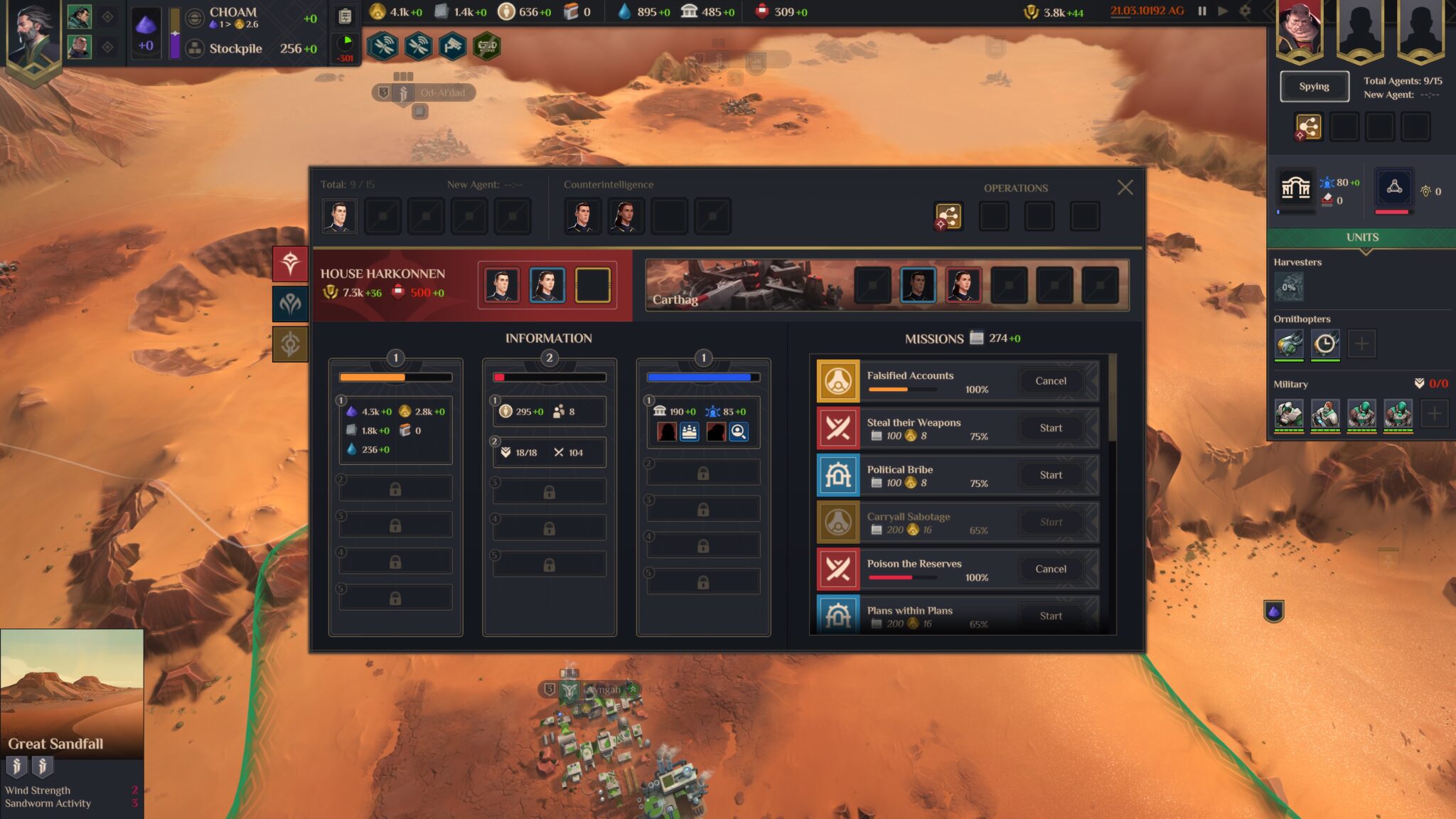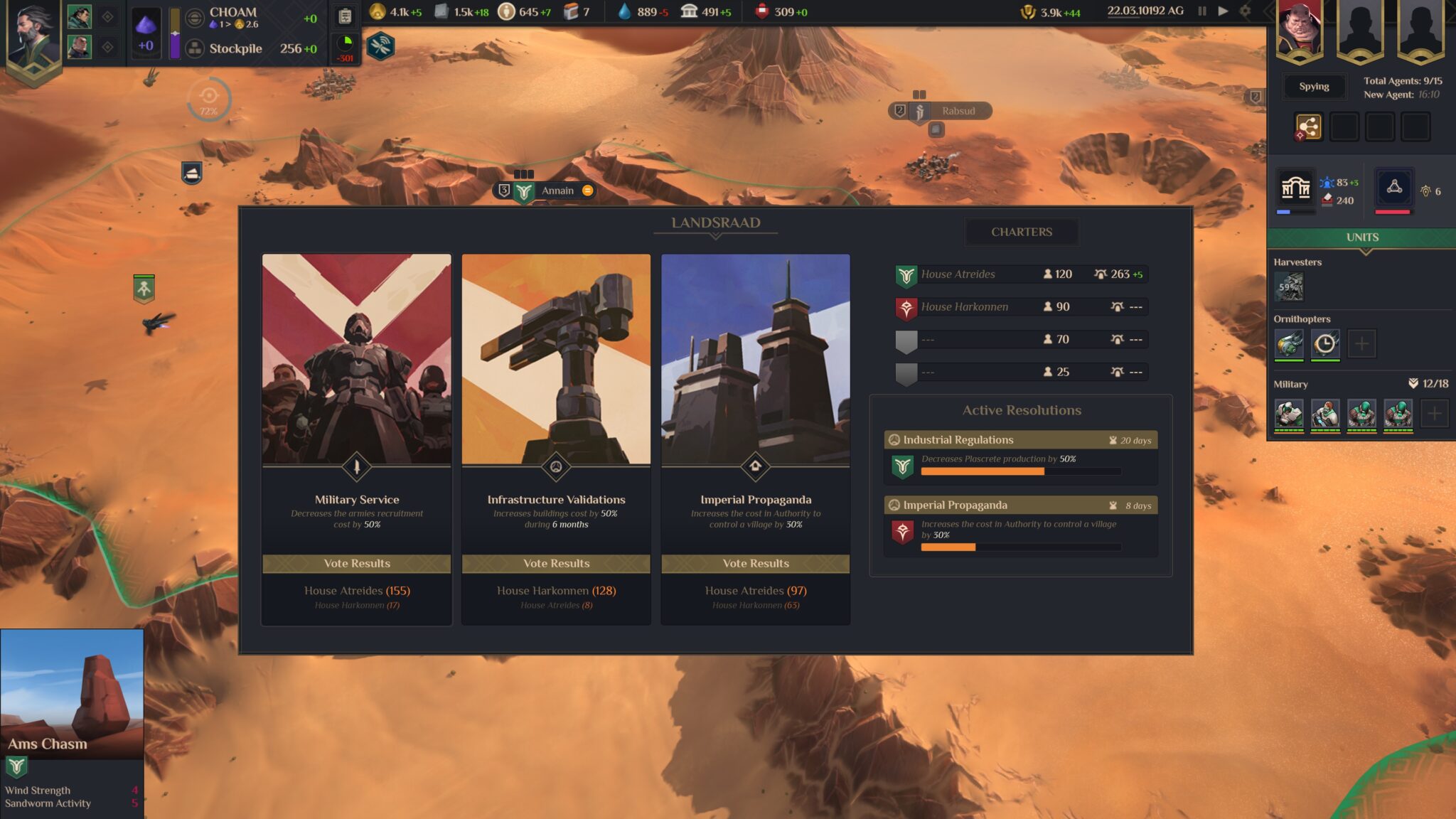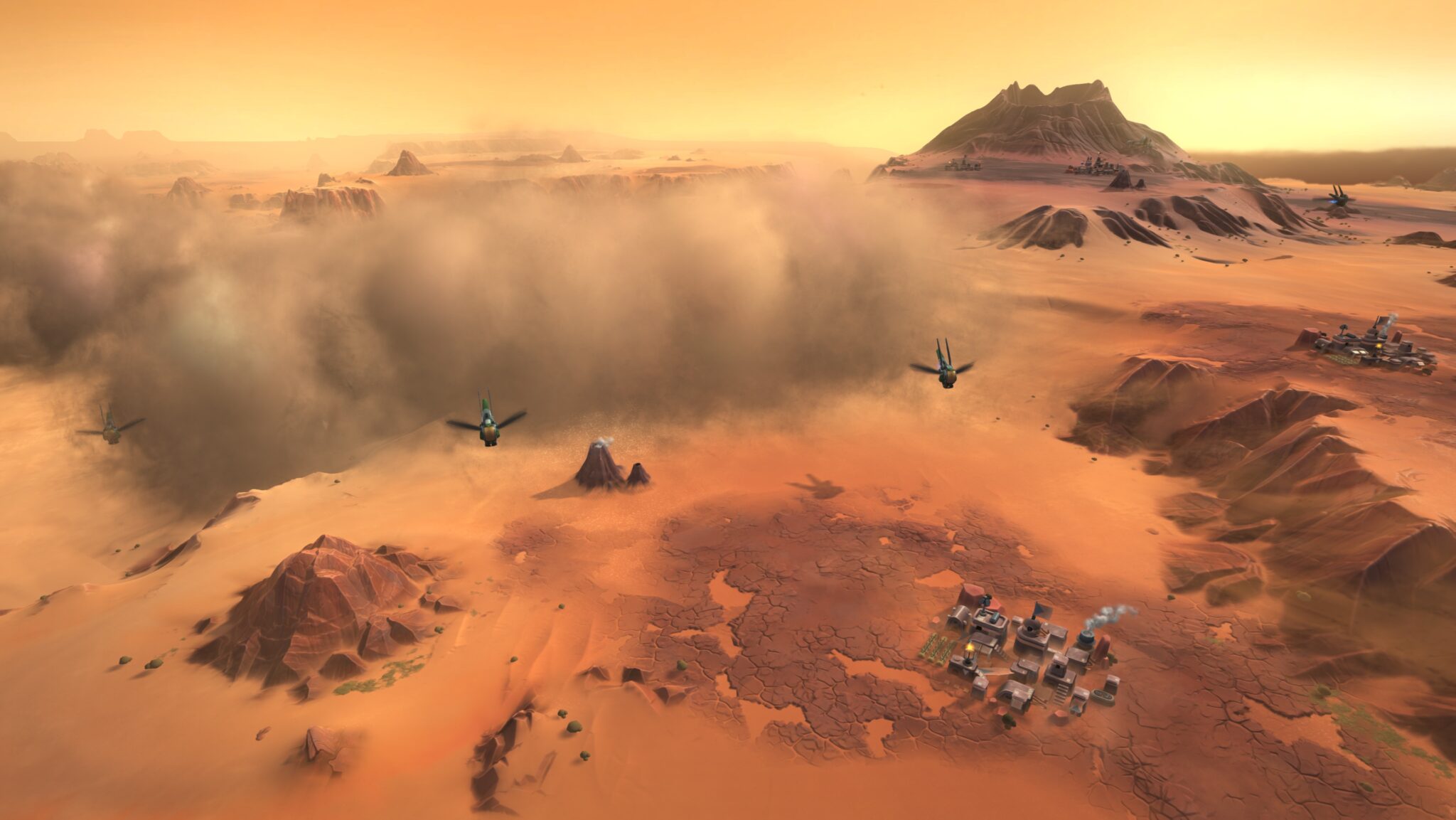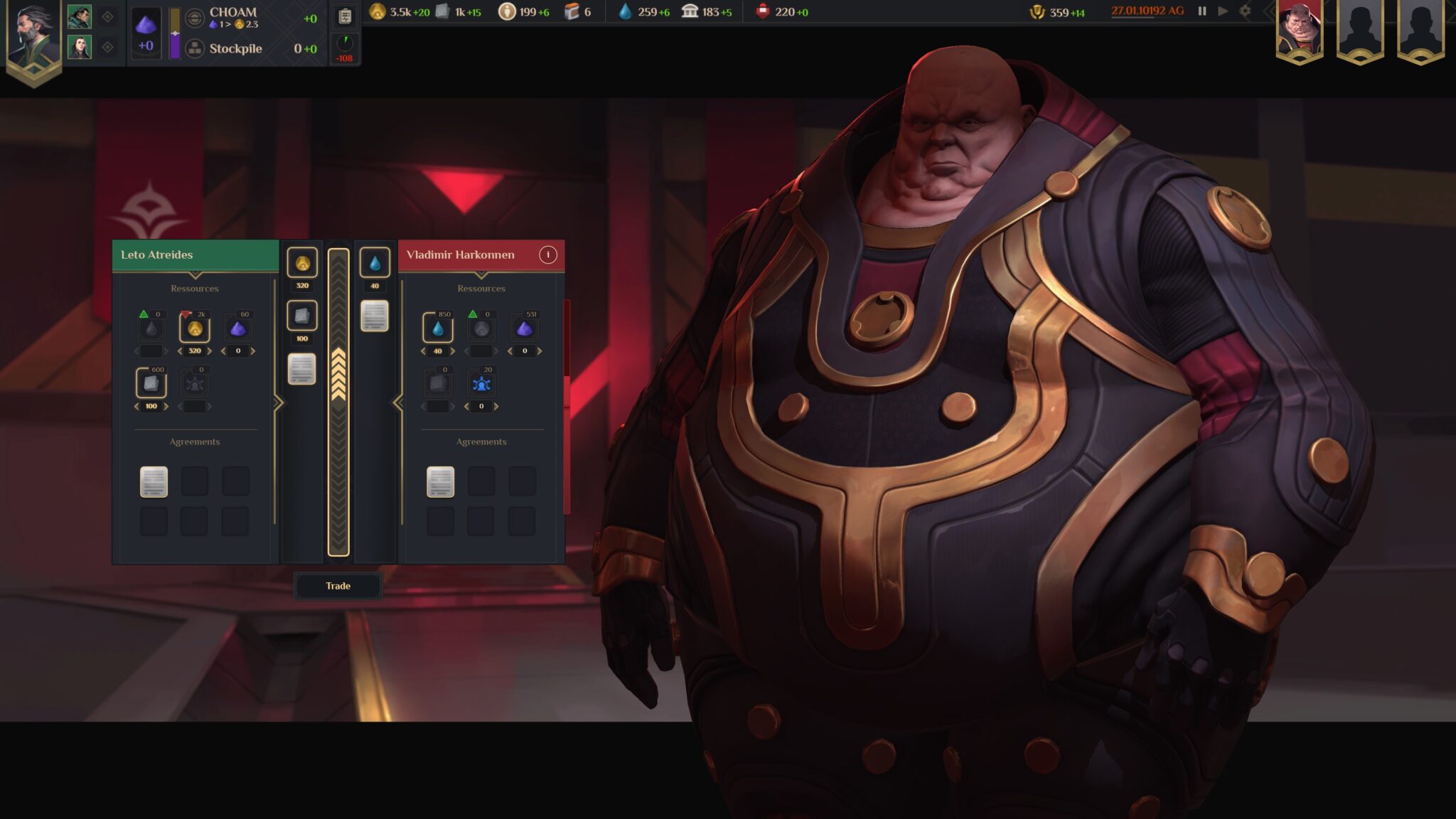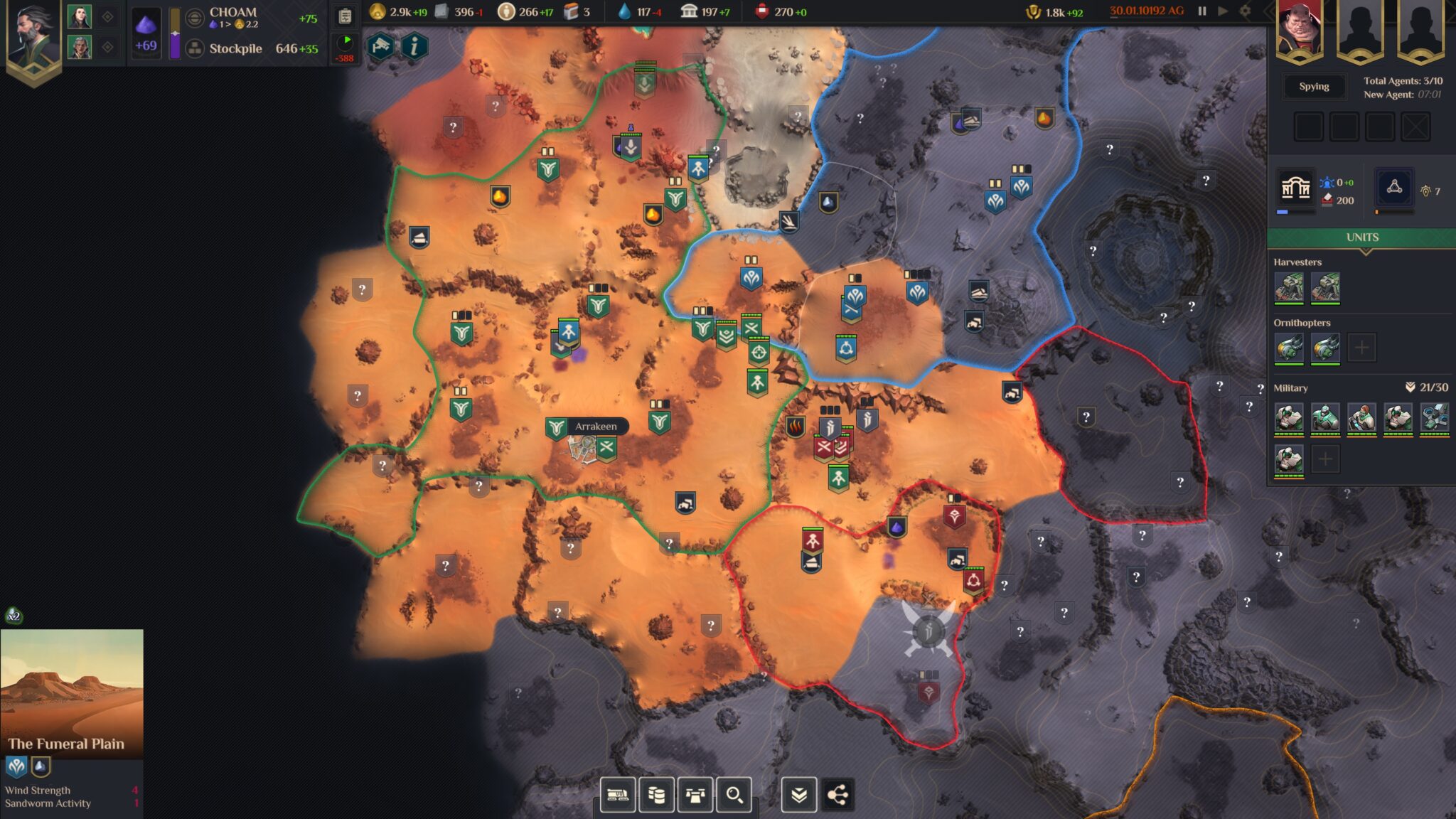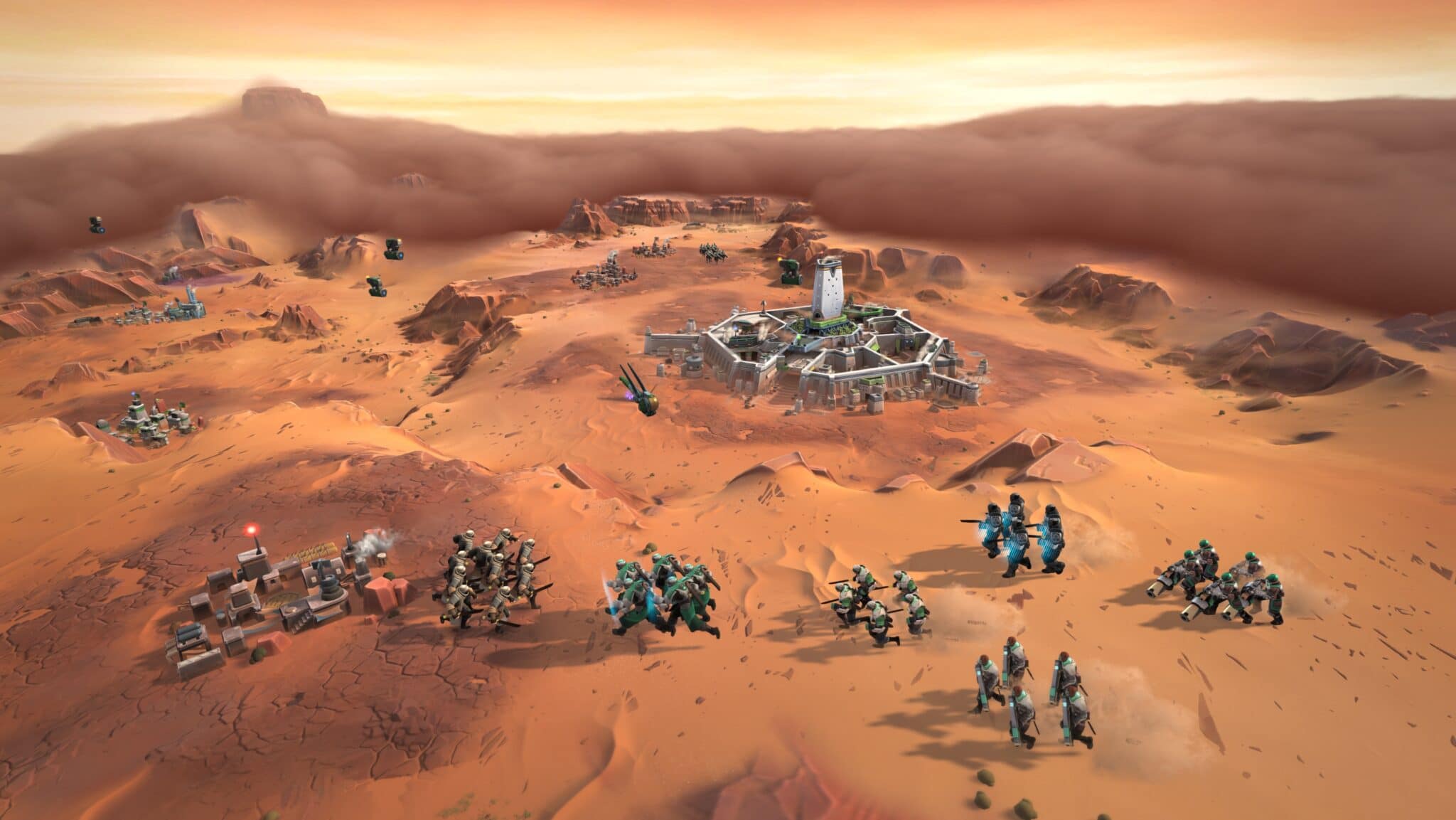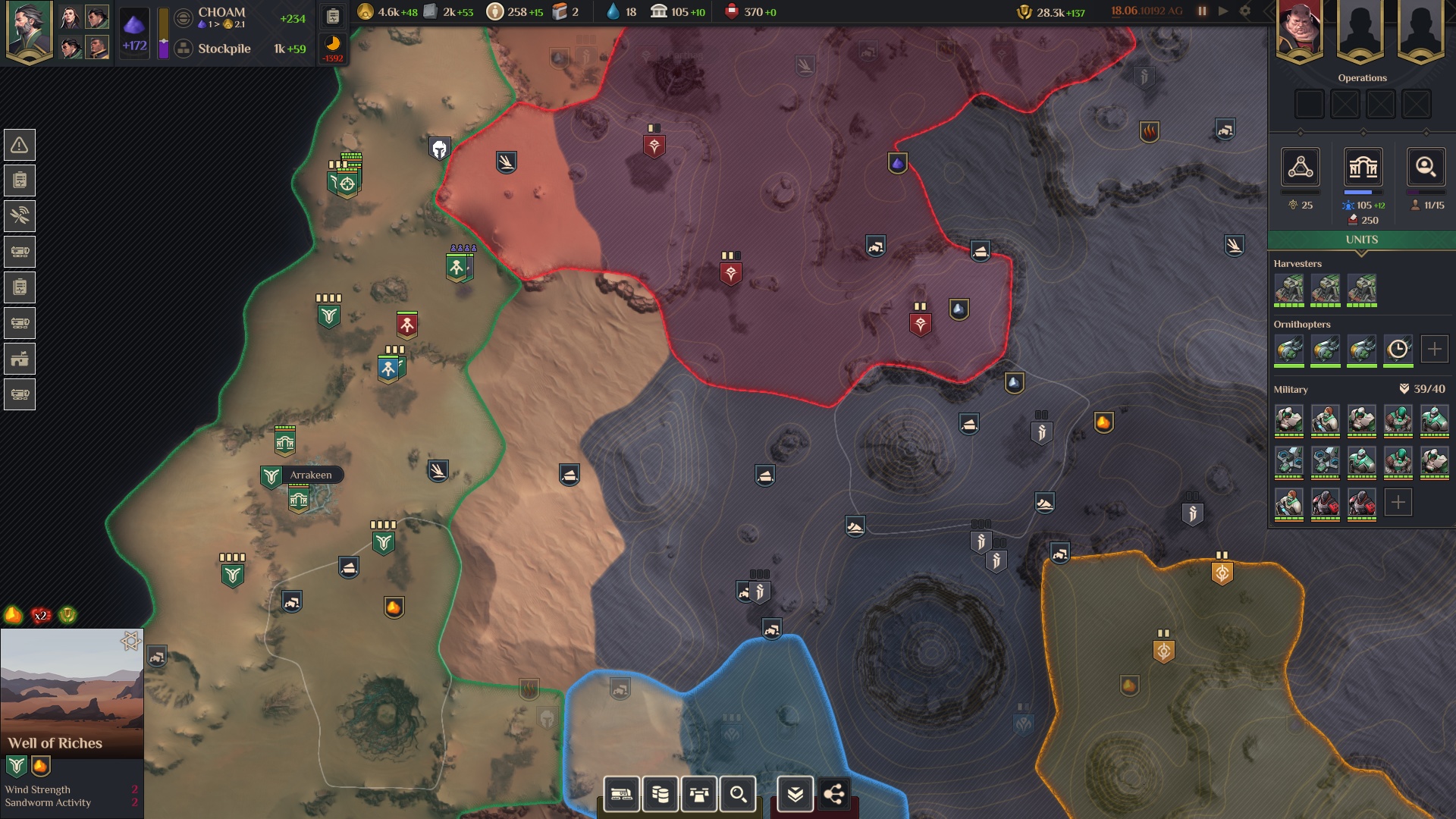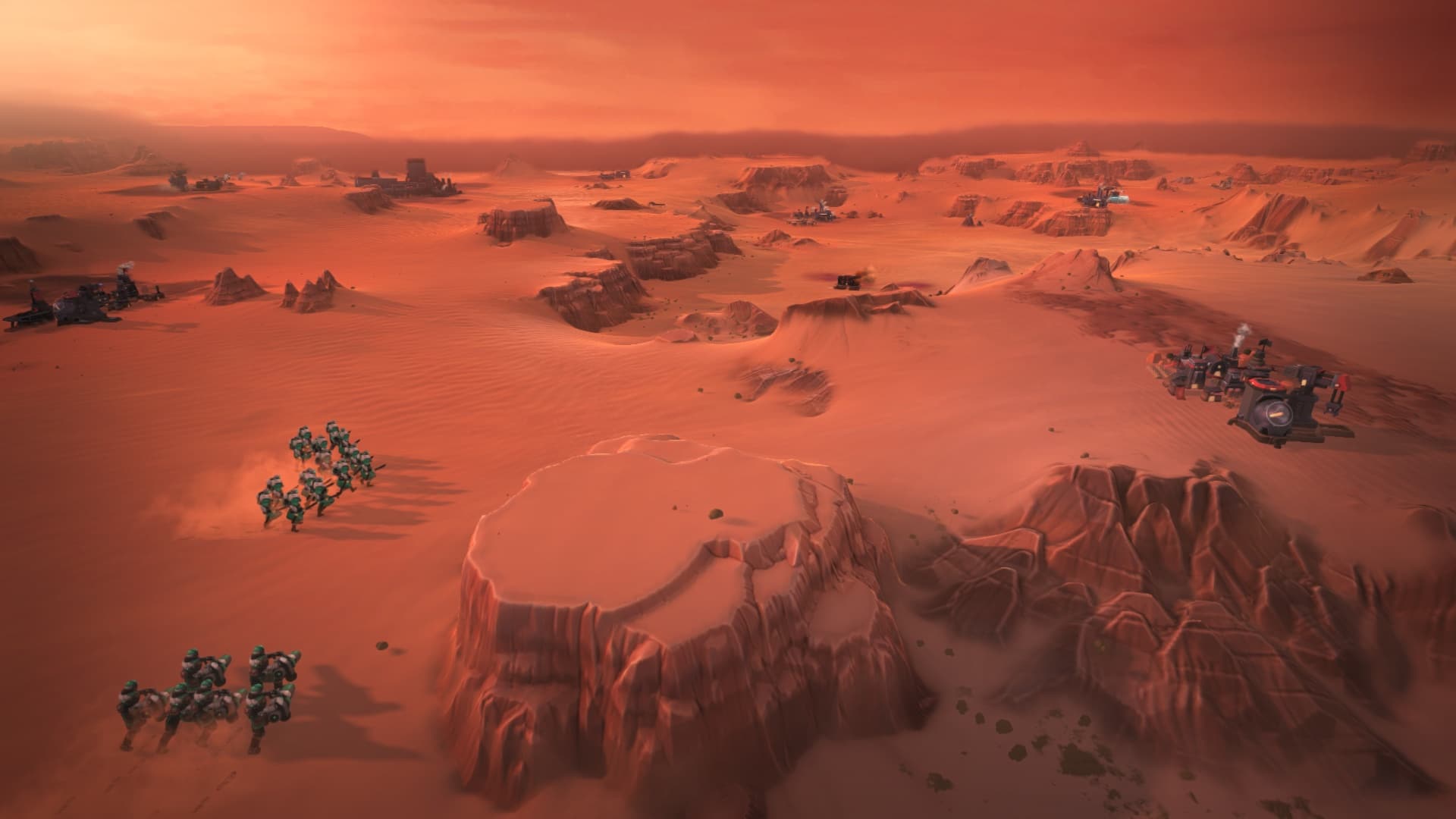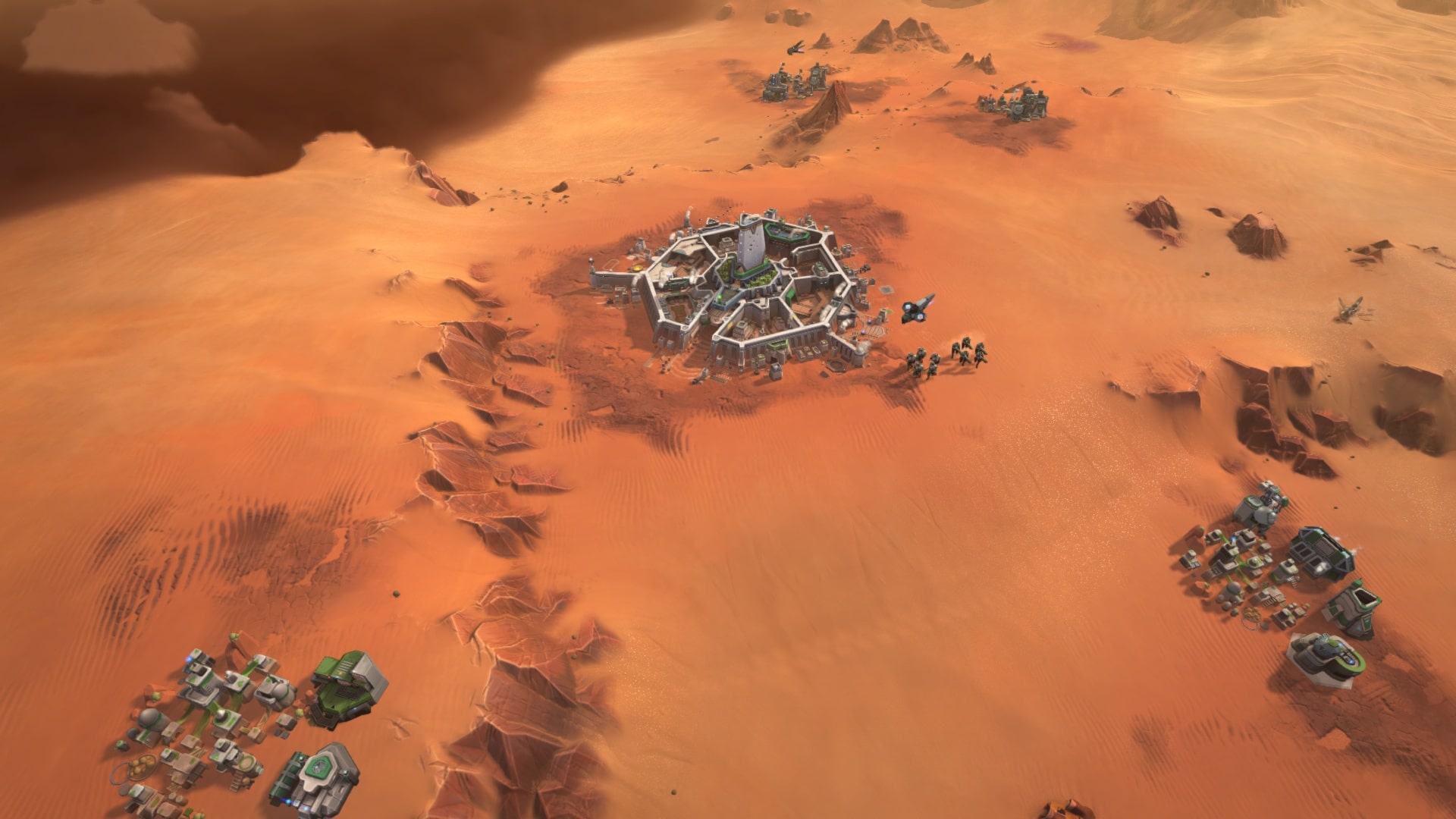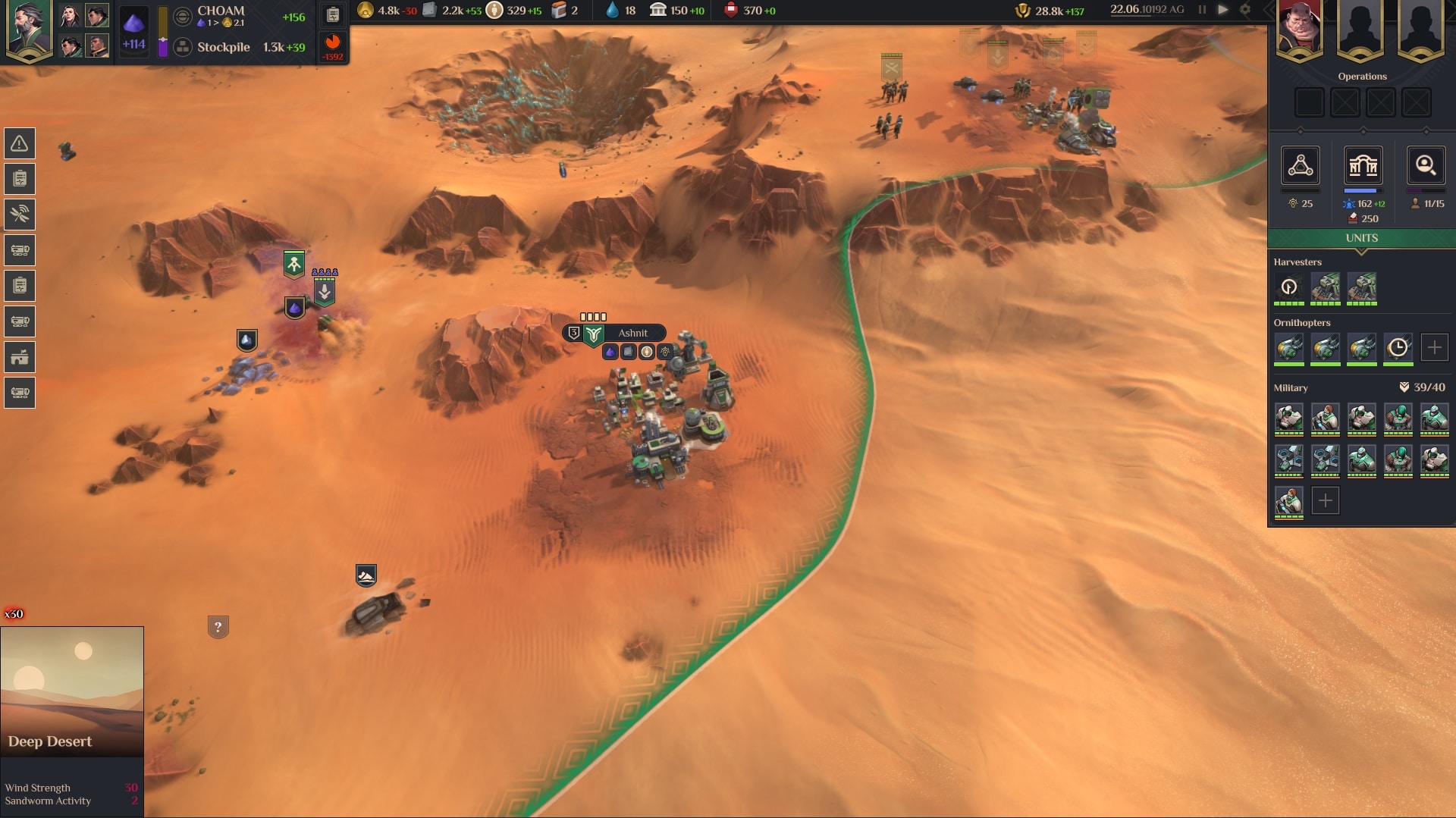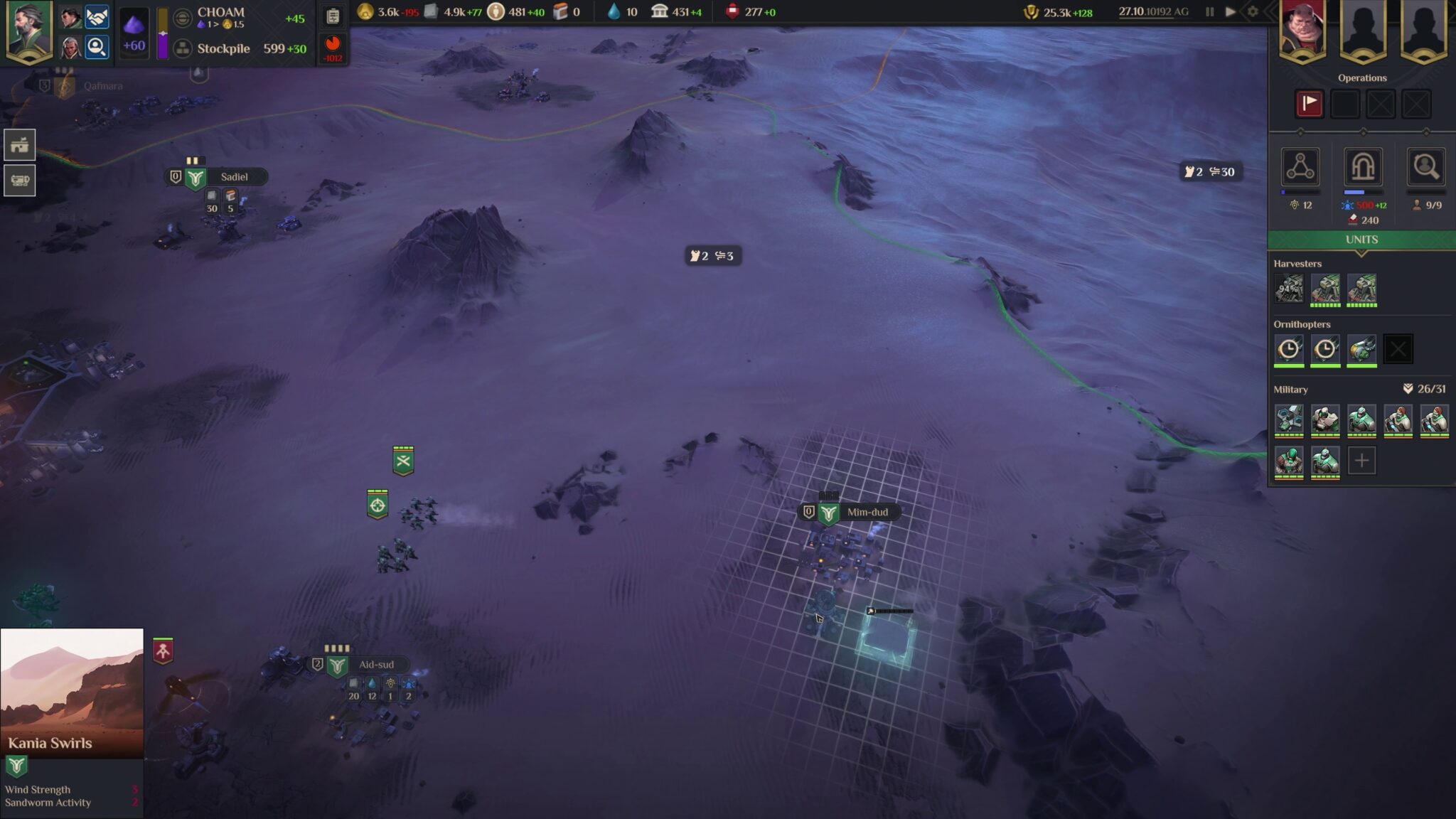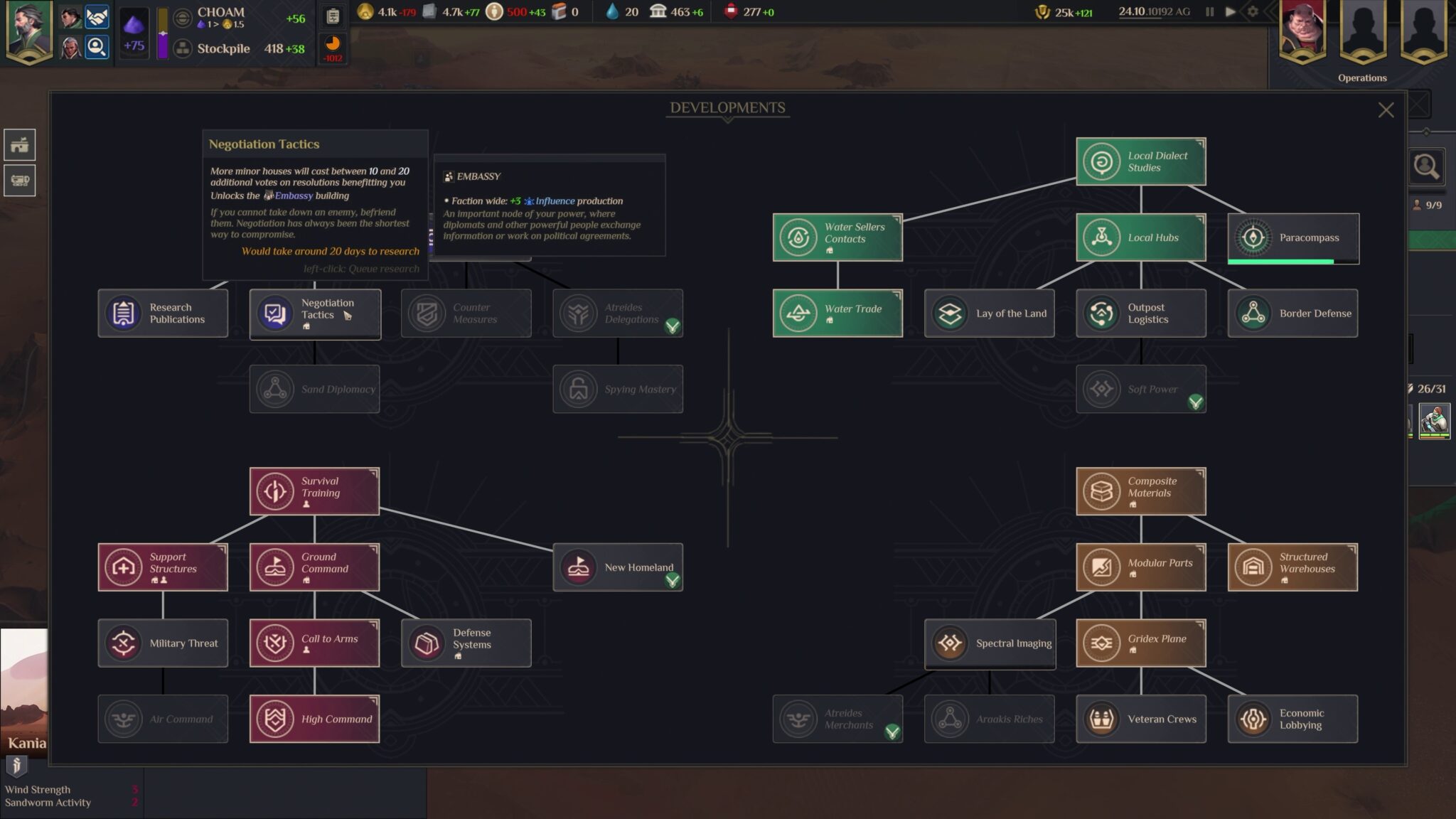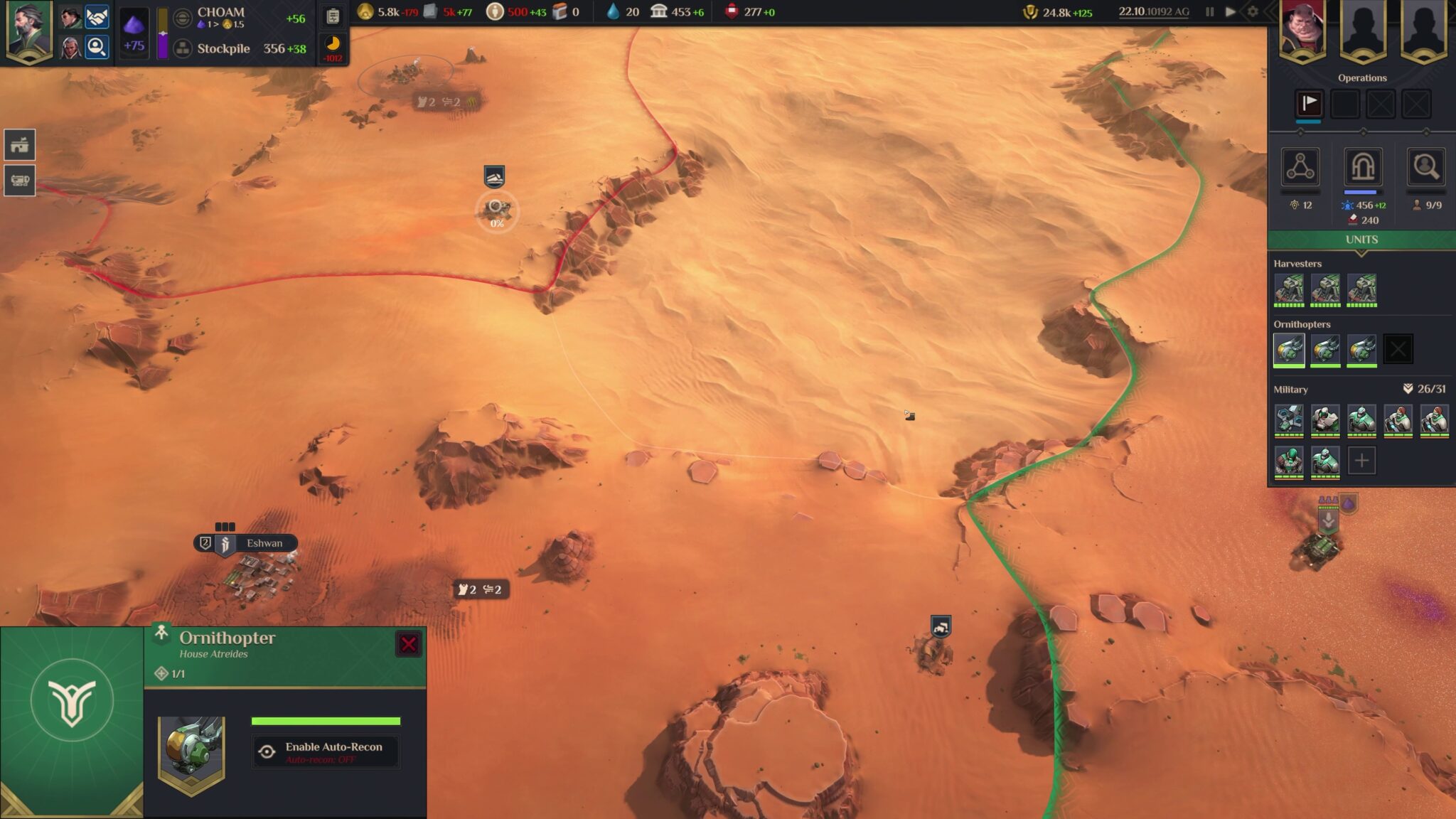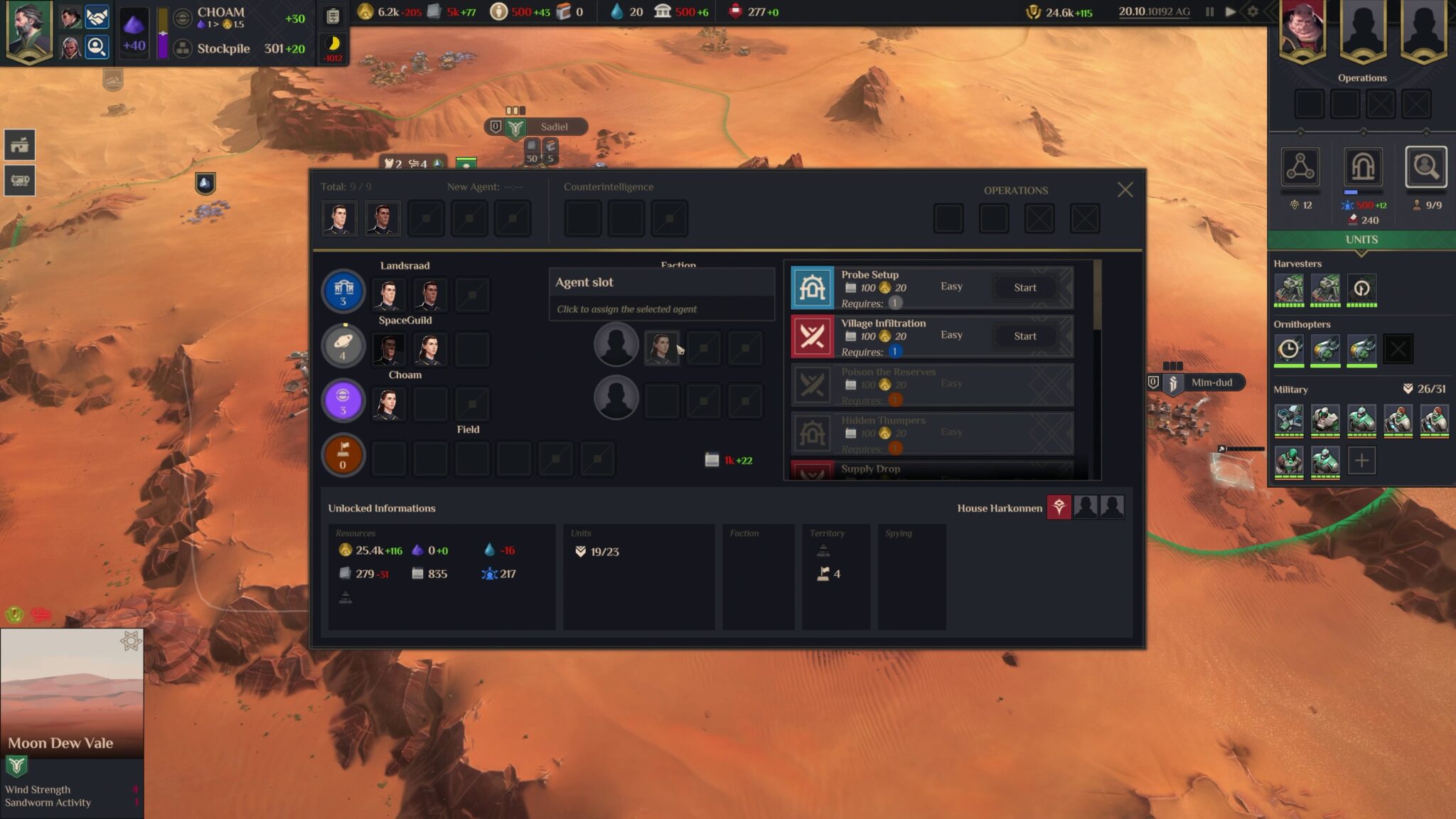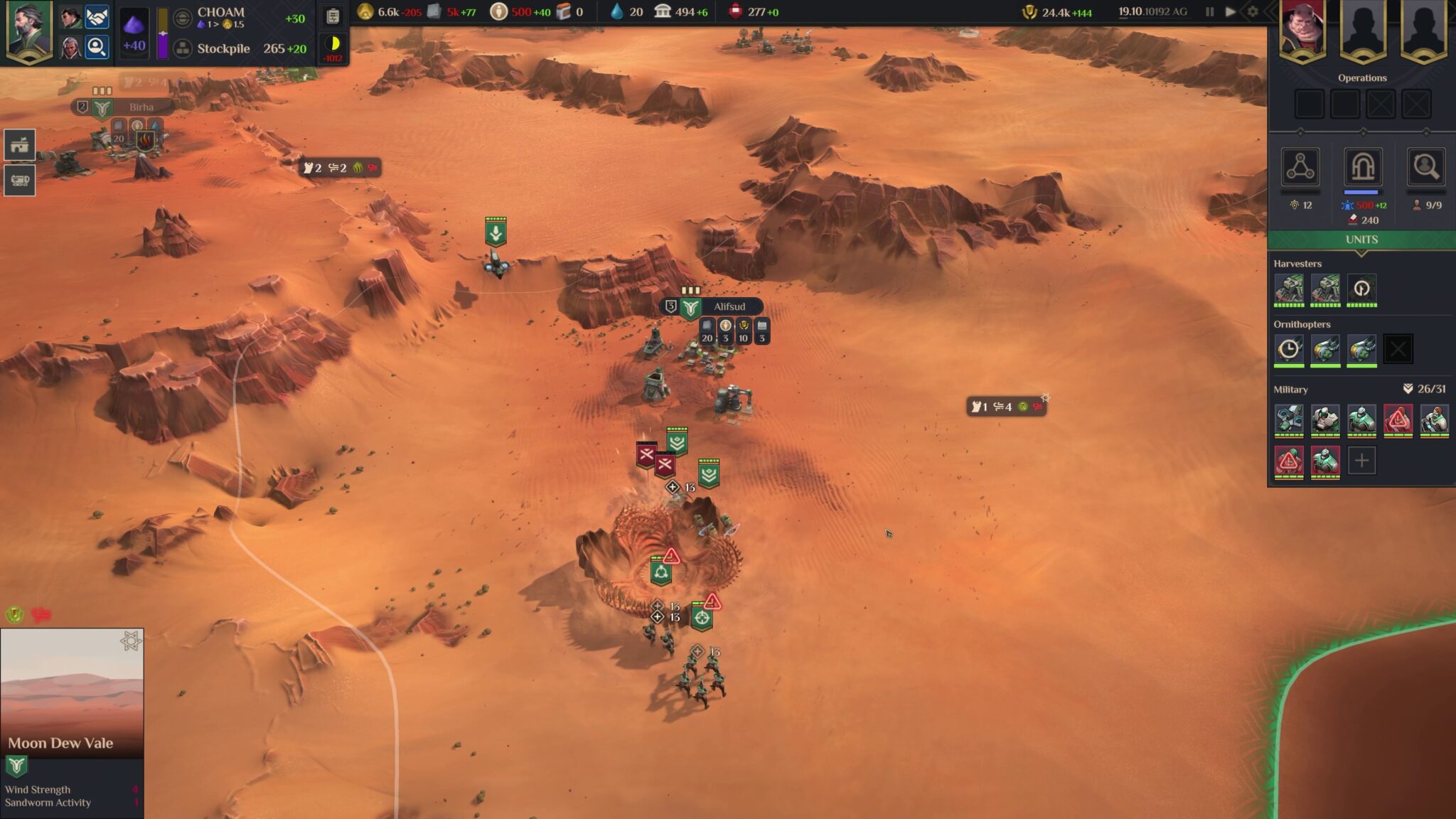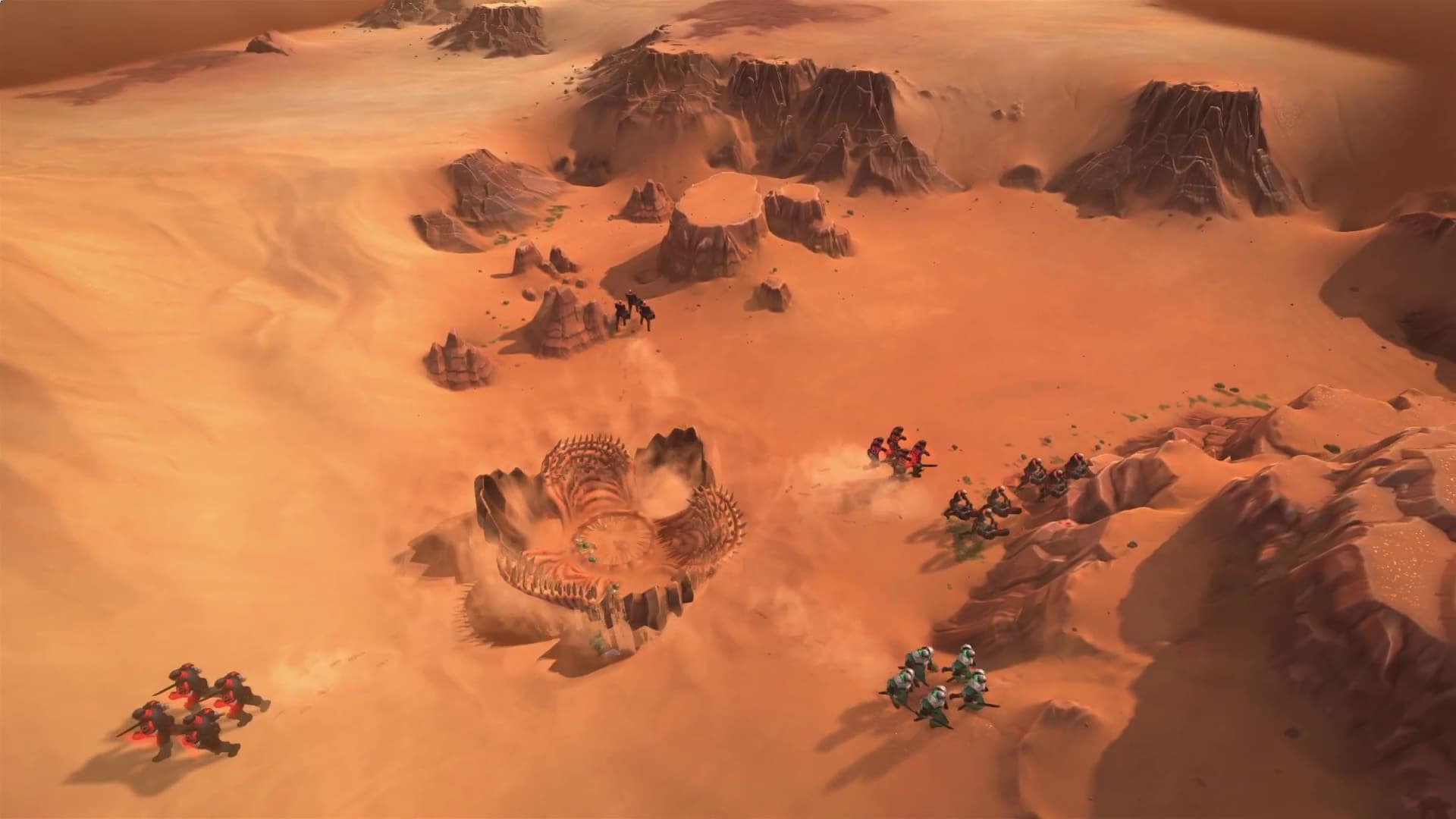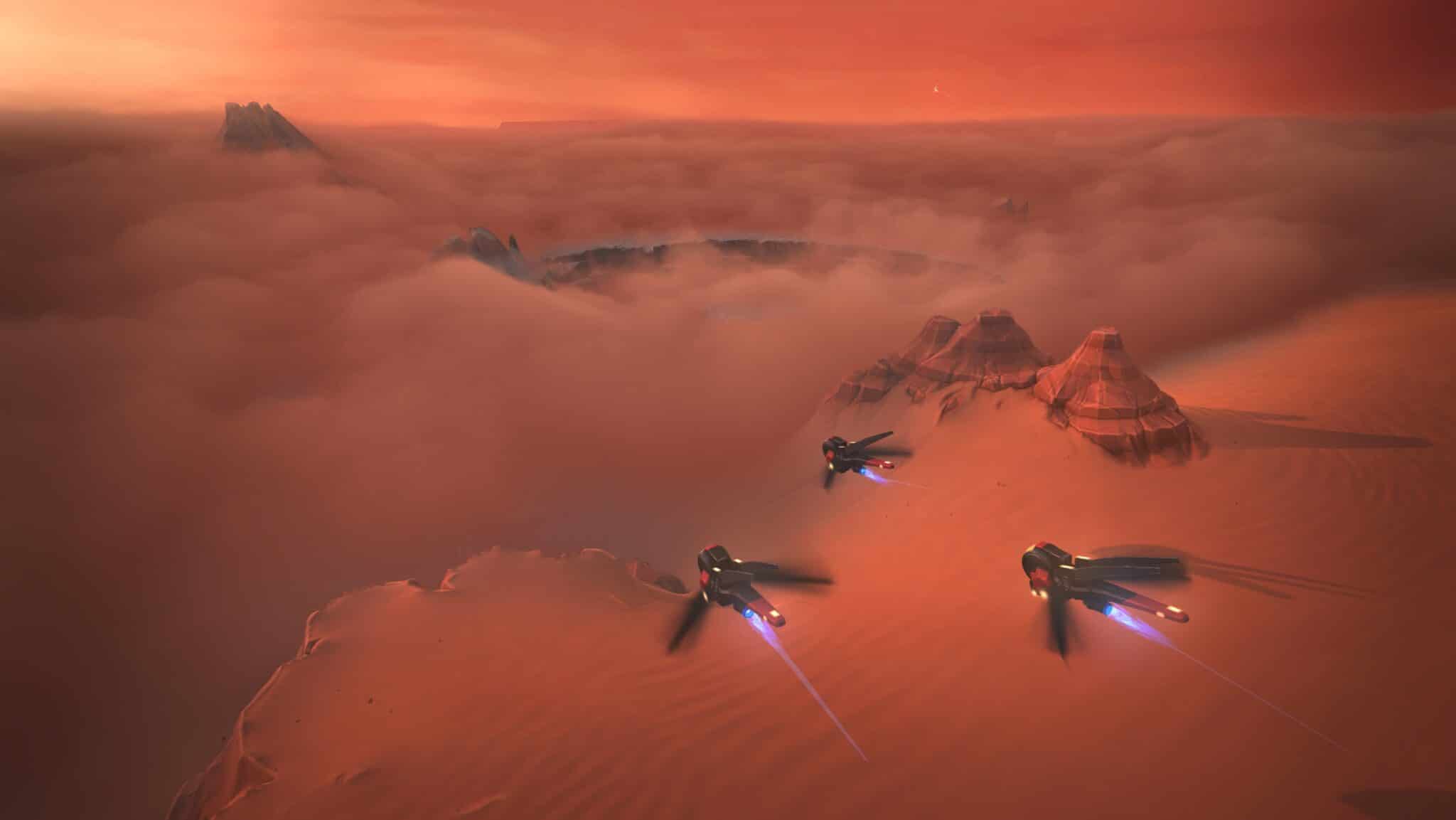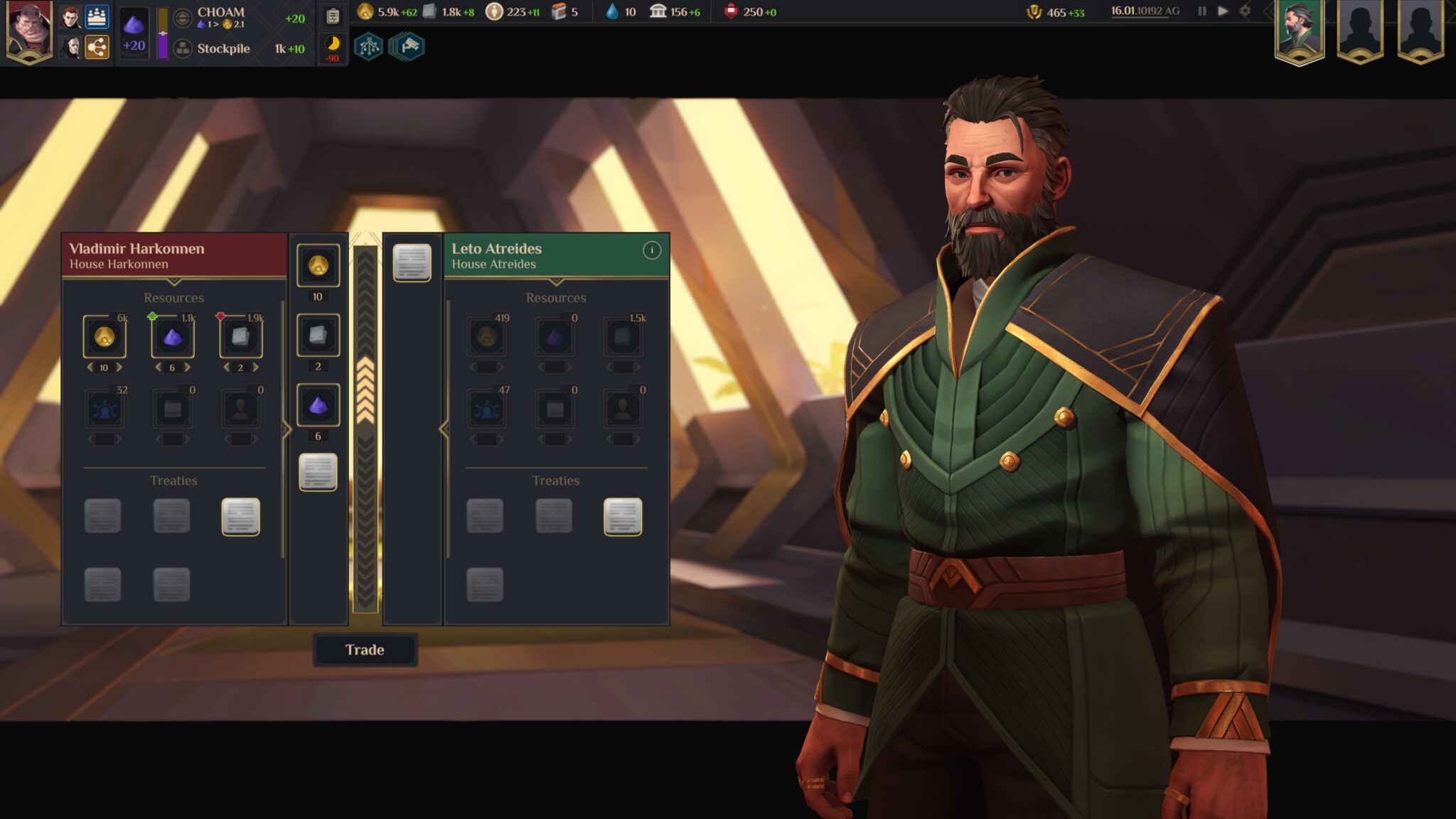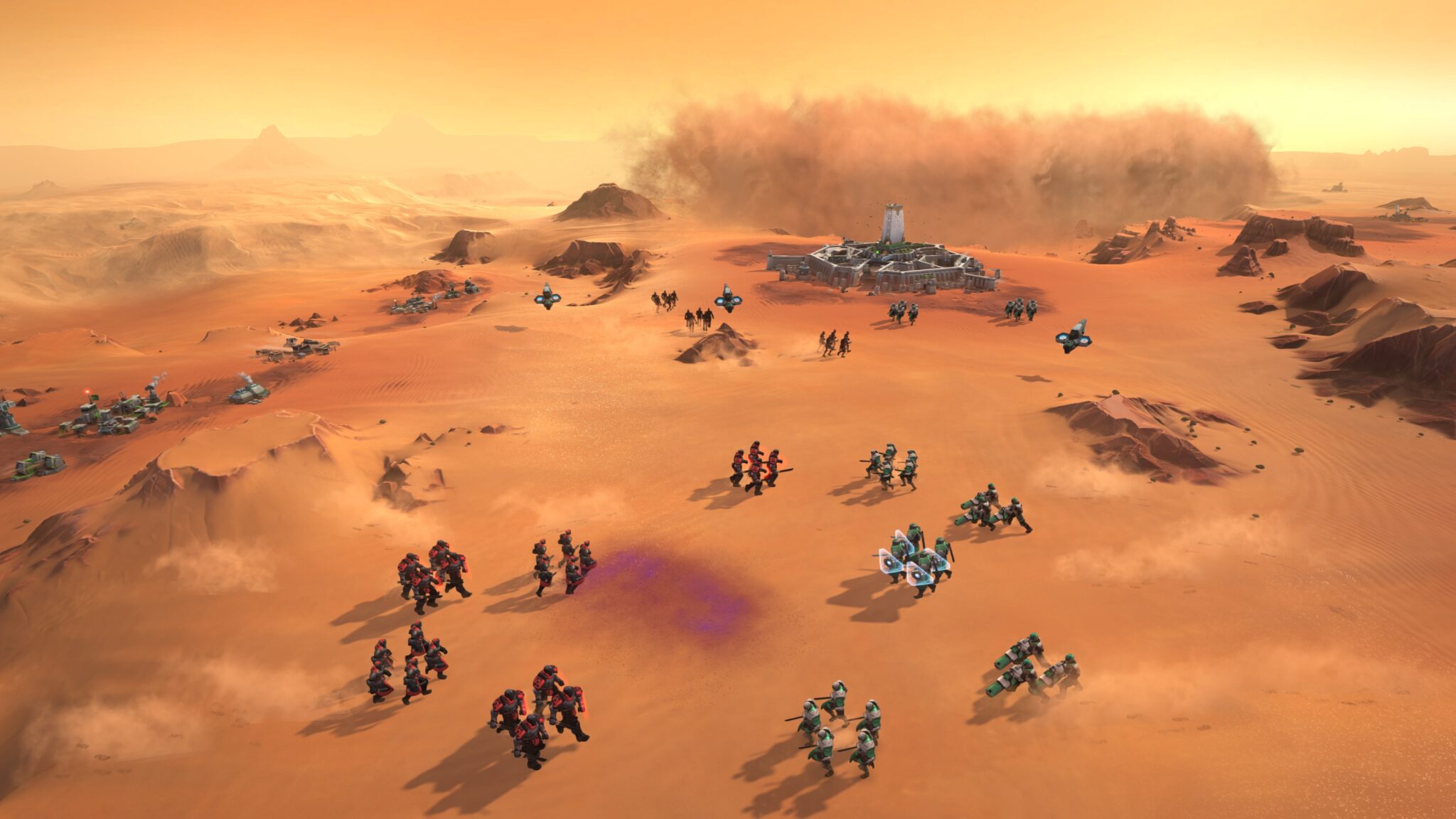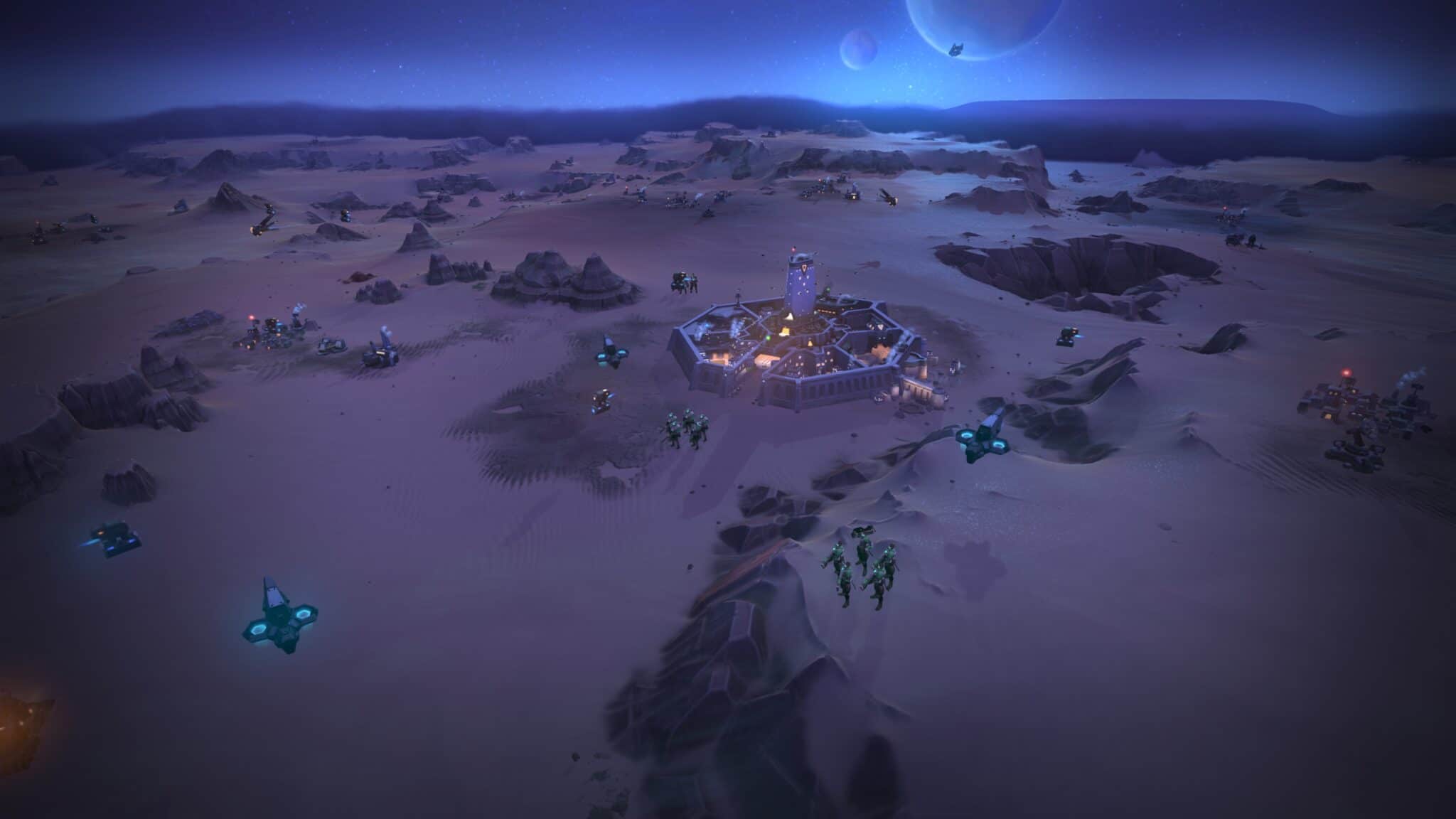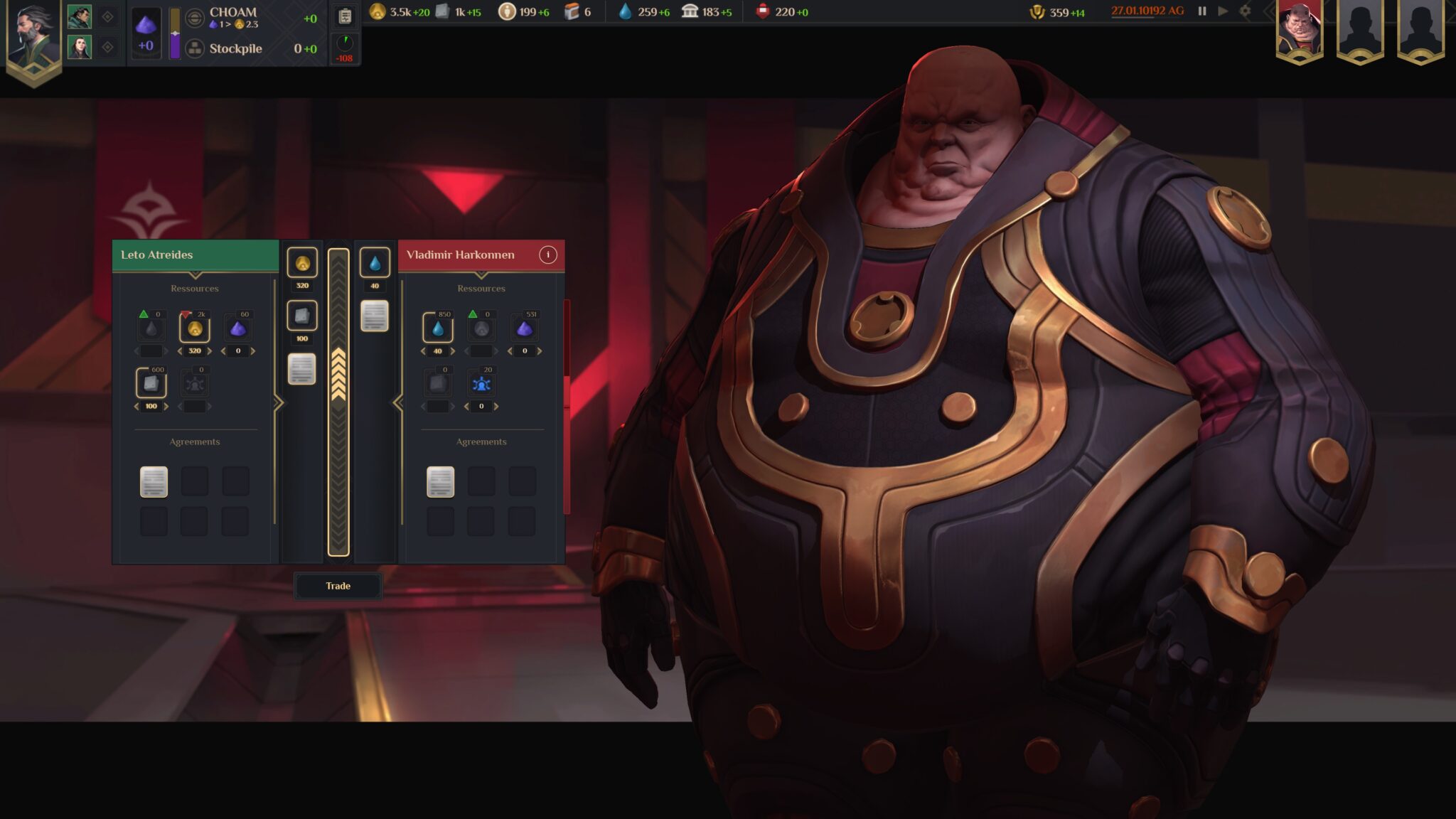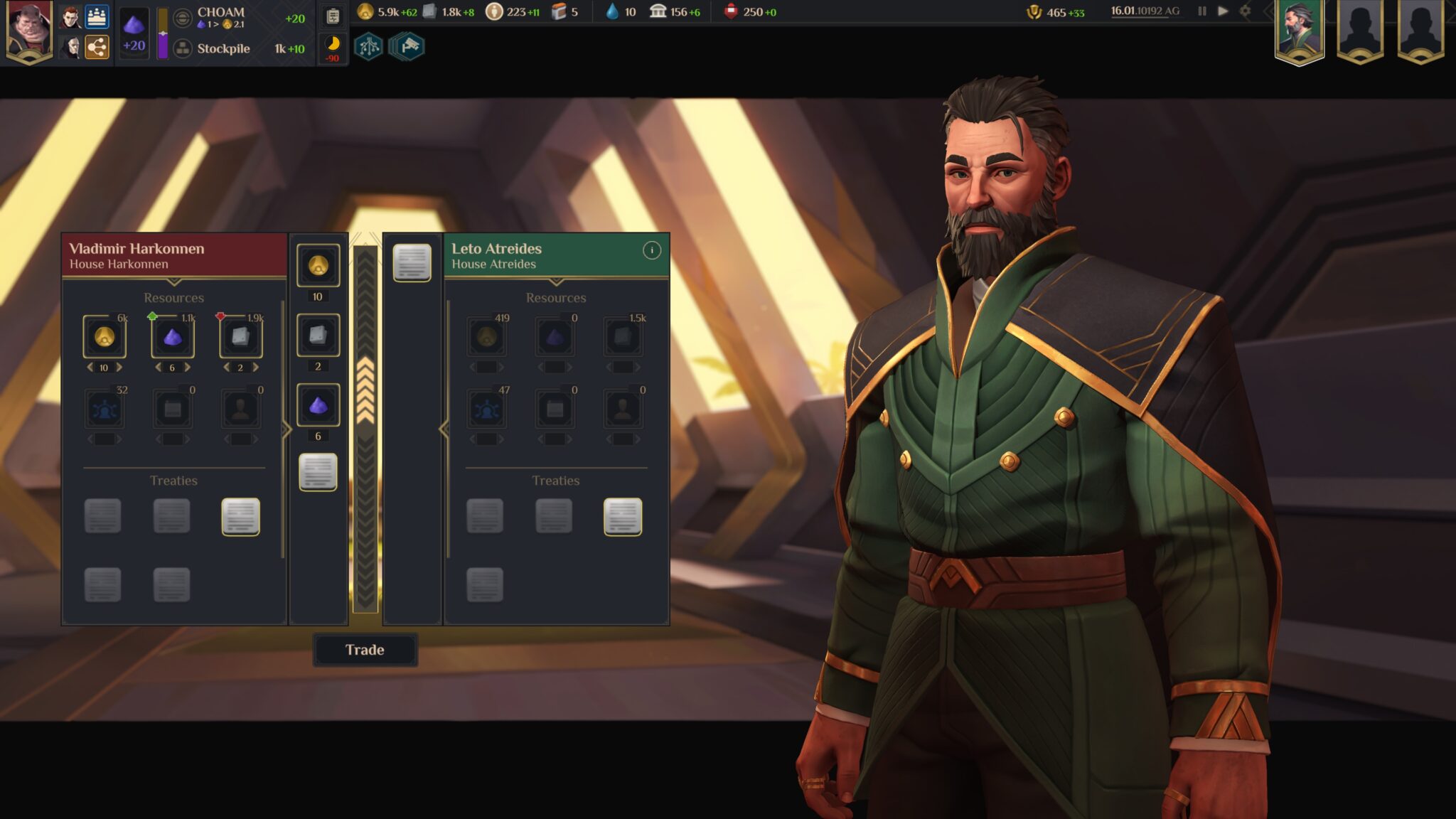Quite little was known about the exact gameplay of the new strategy game in the popular Dune universe. Now we know more, but are still slightly sceptical.
It is a little curious. If you follow the river of real-time strategy games to its source, you will always discover Dune 2. This game is the archetype for all classic real-time strategy games that came after it.
Genre connoisseurs usually think of WarCraft, Command & Conquer or Age of Empires first, but none of them shaped this concept of real-time battles, resource gathering and base building. That’s what Dune 2 can pin on its noble banner.
This achievement was not enough to make Dune games flourish into a big name alongside WarCraft and co. in the years that followed. Nevertheless, this background is enough to make one prick up one’s ears with interest as soon as there is talk of a new real-time strategy game called Dune again. It feels like the return of the forefather.
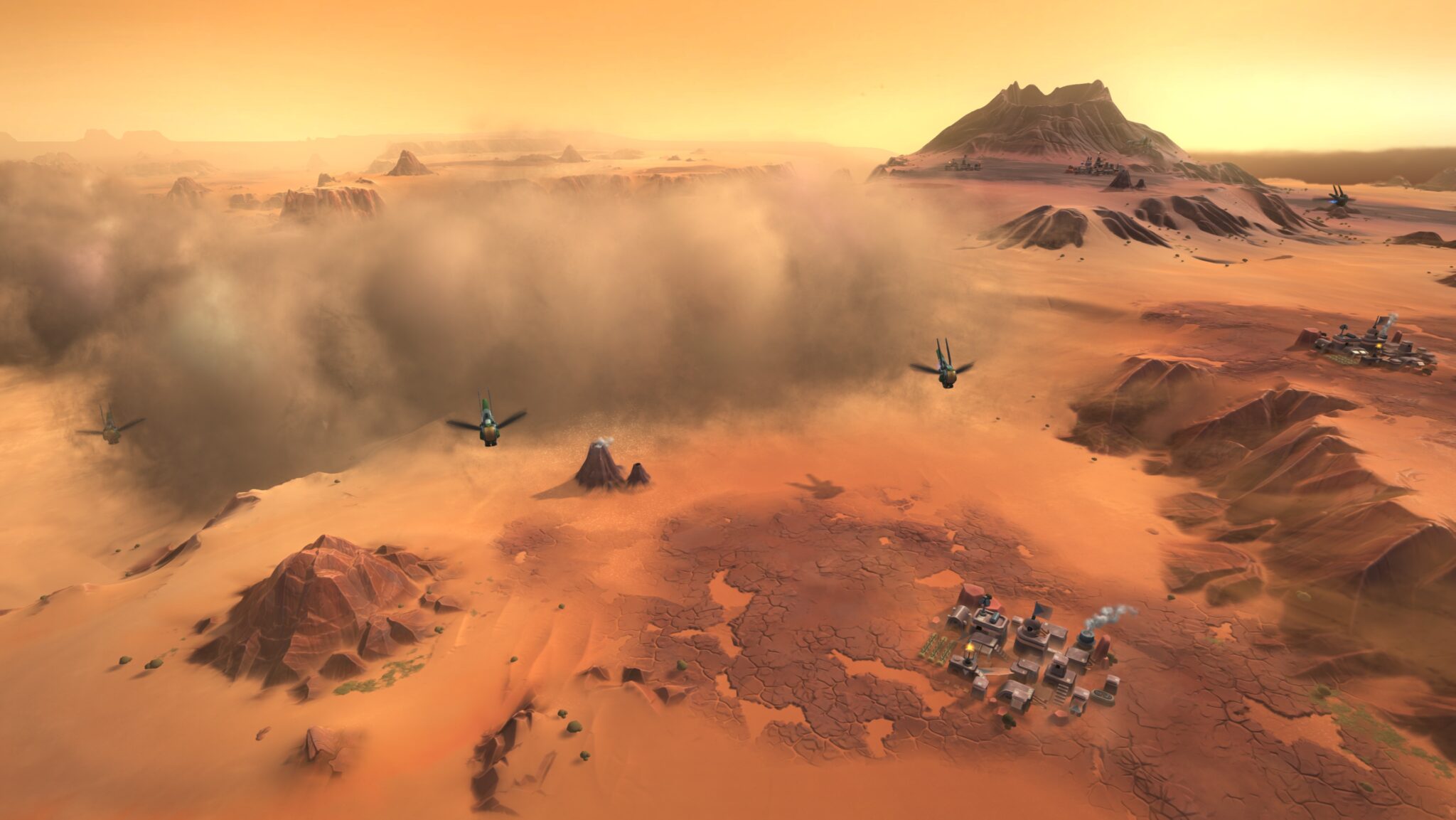
At least among GlobalESportNews readers, that seems to be the case, as the announcement of Dune: Spice Wars managed to attract a surprising amount of attention. Even if concrete information about the gameplay has so far remained hidden under a layer of sand several metres thick.
But don’t worry. Today is the day we start digging and try to find out – how much RTS is in there anyway. We should have just brought a little more water, because our trip into the desert was dry. Well – even drier than initially thought.
Table of Contents
What kind of game is this exactly?
With our talk of Dune 2, base building and real-time strategy, we have deliberately lured you into a bit of quicksand (GlobalESportNews assumes no further responsibility for any sand metaphors from this point on). For although Spice Wars advertises with this genre designation, and not without reason, it has very little in common with Dune 2 or Age of Empires 4.
Spice Wars is much more reminiscent of Civilization in real time and with one predominant terrain type … Desert. At the same time, Spice Wars is by no means meant to tie players to the same game for dozens of hours. Here, from start to finish, no days go by in which our laundry gets musty in the machine or a layer of dust builds up on the shelves. A single batch of Spice Wars is said to last between three and five hours.
Spice Wars sits here, then, between the sandbars. To call it classic real-time strategy, the base-building simply isn’t distinctive enough and the battles aren’t present enough. But anyone expecting a full-fledged global strategy game on the desert planet of Arrakis is also a bit off the mark.
The new Dune is both. And therein lies a challenge but also its greatest potential.
Mist of War can be pretty too
The first thing that caught our eye during the gameplay presentation of Dune: Spice Wars was the prevailing fog of war. And not only because at the beginning of a game the whole map is covered by it and only a tiny zone with the capital of our faction is spared. Quite banally, it also looks quite pretty.
This may sound like a strange fascination with sand clouds, but the way the thick, light-brown mass of dust oozes over the landscape, constantly swaying and billowing like a large thundercloud, is almost hypnotising.
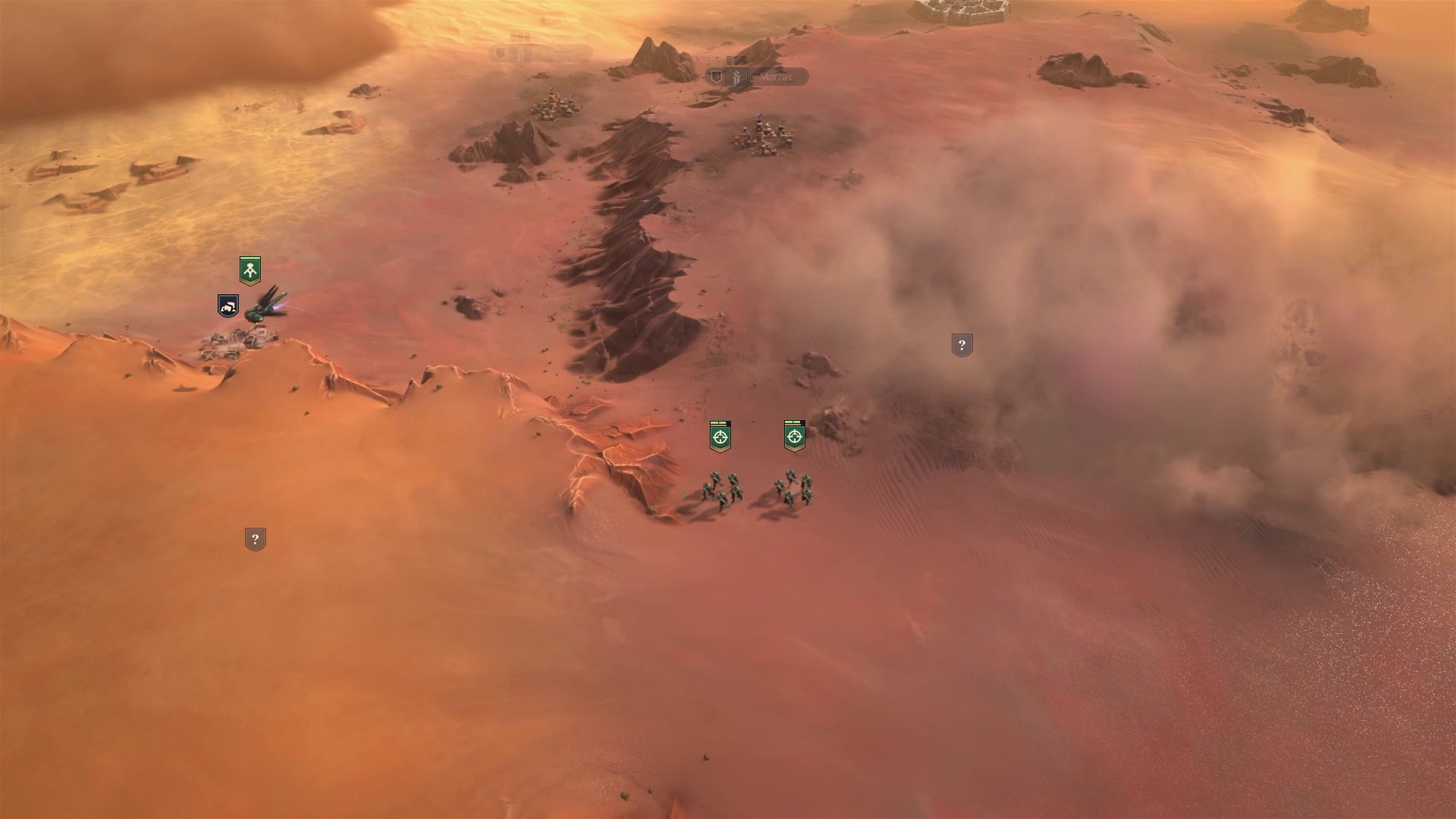
Generally, the landscapes of Spice Wars in particular look great, even though there is only desert to be seen here, true to the original. How much you like the partly very overdrawn characters is another question.
In the first few minutes of the game, however, the aim is to drive away the sand clouds with the help of the dragonfly-like ornithopters. After all, there are all kinds of question marks hidden underneath that need to be explored. In the best case scenario, we will also discover a purple-washed area right next to the main stand – a resource source for the spice that determines everything in the Dune Universe.
Excavate resources
There is no question that Spice has a role in a Dune game in some form. However, it is far from the only resource we should be concerned about. In fact, in the grand scheme of things, Spice doesn’t take on such an overly important role that eclipses everything else. Water, for example, is said to be at least as important as the coveted drug. If the water runs out, the subjects start to rebel.
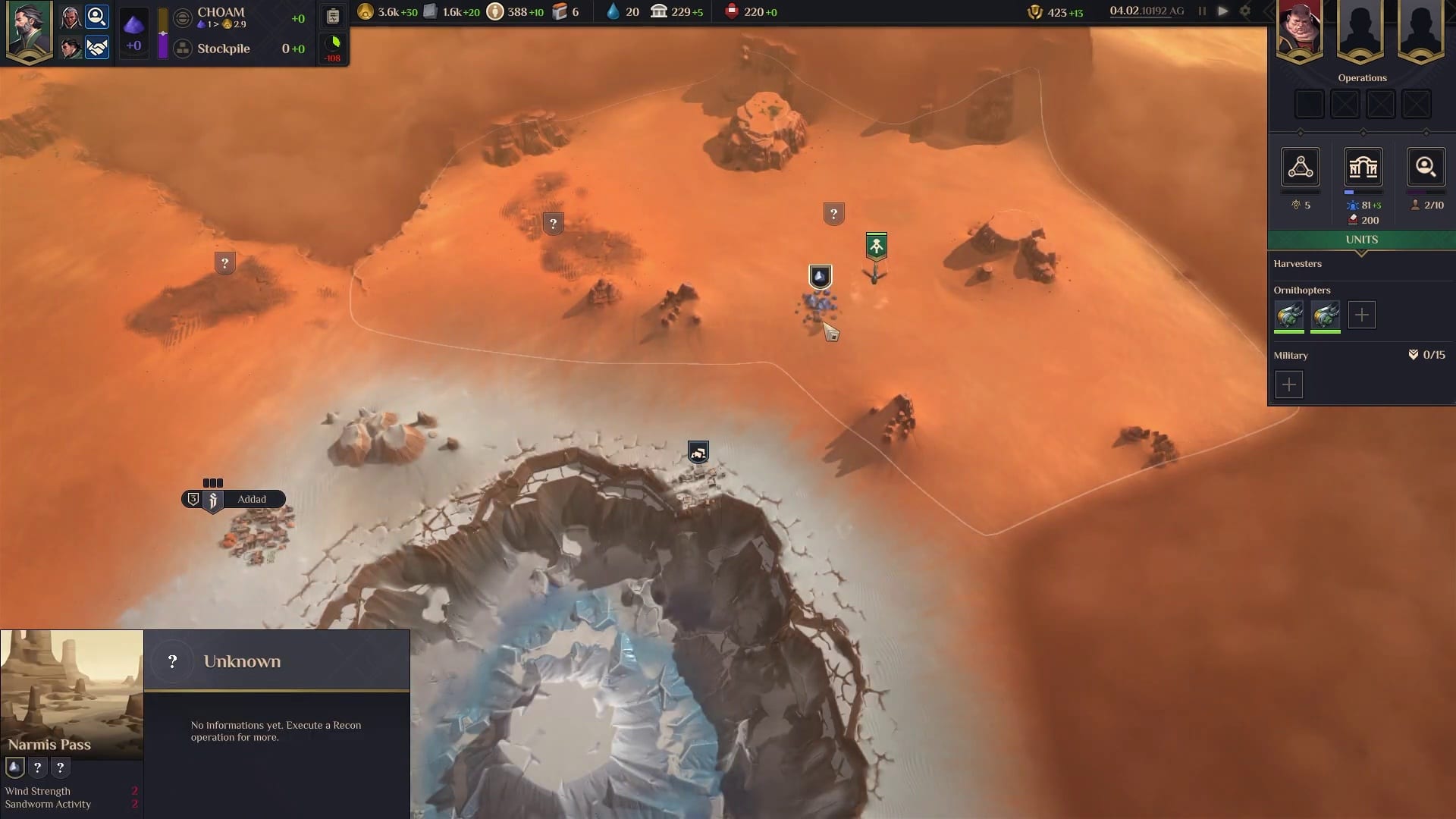
Spice’s primary purpose is that it gives us another resource, Solari. This is filthy lucre, which as we all know is always important in global strategy games. Be it to pay soldiers, construct buildings or finance agent actions. Alternatively, we can also hoard the spice, which is even more important according to the developers. The emperor regularly demands a share, and if there is not enough, this has negative consequences for our reputation in Landsraad. A place where all the nobles of the empire meet to argue.
But drugs, water and money are not the real thing either, even if Tony Montana might disagree. In Dune, we also need a resource called plascrete to construct buildings and manpower to recruit soldiers – in other words, subjects.
Most of these resources are collected or mined by discovering wrecks, ruins or caravans. Especially for mining we have to take over nearby villages in addition. This is usually done by force of arms, but the House of Atreides faction can also soften them up with words.
2022 in Early Access
Dune Spice wars is scheduled for release later this year, but only in Early Access for now. Only detached games against AI opponents are planned for the start. Multiplayer will only be added through updates. The same applies to the story campaign. It is also possible that more factions will be added to the game by the time it is released. For now, only four are planned. According to the developers, the early access period should last between nine and twelve months.
Every nobleman for himself
Courting a village instead of forcing the population to join is an example of how each of the total of four factions should stand out from the others. Only House Atreides and House Harkonnen are known by name so far. The old squabblers.
While the diplomatically adept House Atreides attaches great importance to loyalty and honour, House Harkonnen, led by the round-headed leader Vladimir, is known as a conscienceless opportunist who gives priority to military power and flirts with espionage or even assassination. However, each faction can differ slightly from game to game, as we choose two of four advisors right at the beginning.
Each of them gives us passive advantages. For example, we can decide whether to compensate for our diplomatic disadvantage with a politician versed in this area in the role of the House of Harkonnen or to optimise the military strength of this faction even further thanks to a leg-breaking general.
Each faction also gets a completely unique selection of units. The Atreides’ forces rely on good defence and have the option of supporting each other – Harkonnen’s troops, on the other hand, are extremely brutal, can go into a berserker rage or cause immense damage even at the expense of their own people. Dune: Spice Wars is not exactly subtle in showing who has the sympathy – but that was never different in the original.
The battles in Dune, however, are not exactly the emotional highlight of the presentation. The right positioning and good micromanagement are supposed to be necessary here, but so far none of this seems like a brilliant battle. The characters bash each other a bit until the others eat dust. By the way, such battles can also attract sandworms, which then eat entire regiments. That, in turn, looks impressive.
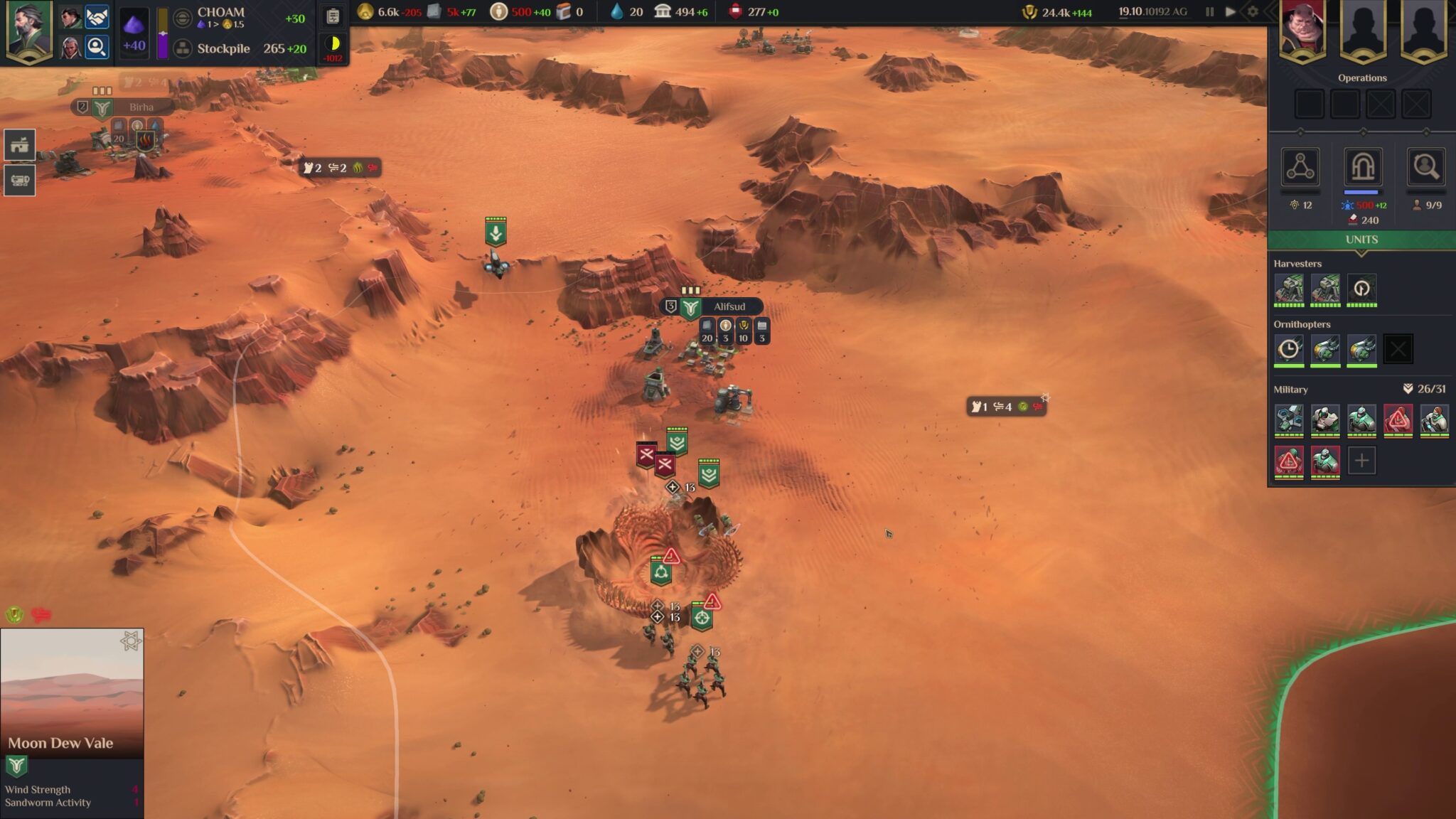
Lords, merchants, schemers
Of course, the battles can still change a lot before the release, after all, the effects are still being refined and a play session will show whether there are exciting strategic decisions. But it is clear in any case that battles in Dune: Spice Wars do not have to shoulder the fun of the game alone.
That brings us back to the point: Spice Wars is an RTS, but one with very present 4X mechanics. Therefore, in addition to fighting, it is also important to put our opponents in their place diplomatically. For this, Spice Wars offers three options:
- Diplomacy: Quite classically, we can simply get into contact with other factions on the map. Harkonnens and Atreides do not necessarily have to fight each other bitterly. The diplomatic window is mainly used to exchange goods or conclude agreements. For example, they can agree to increase each other’s authority. For this, neither faction may vote against the other in the Landsraad. Such agreements are unlocked in the research tree.
- The Landsraad: During the course of a game of Spice Wars, our faction accumulates political influence. Either through good relations with other factions, punctual Spice levies to the Emperor, special buildings or espionage. More influence means more votes in the Landsraad, the noble assembly of the empire. Here, decrees are regularly voted on, which always affect a certain faction. These can be negative or positive. For example, an ordinance increases all building costs of the chosen faction by 50 percent.
- Spionage: Each faction can assign up to nine agents to missions. For this, the characters are simply sent to another faction or an institution. As a spy with the enemy, the agent collects information on resources and the military, while in the Landsraad influence is generated, while places like the Space Guild or the CHOAM generate manpower and money respectively.
This sounds like a lot, but in terms of complexity, each of these options remains quite shallow – at least according to our impressions so far. Spice Wars doesn’t want to set off games that last for days, but rather reduce itself to the five hours mentioned at the beginning.
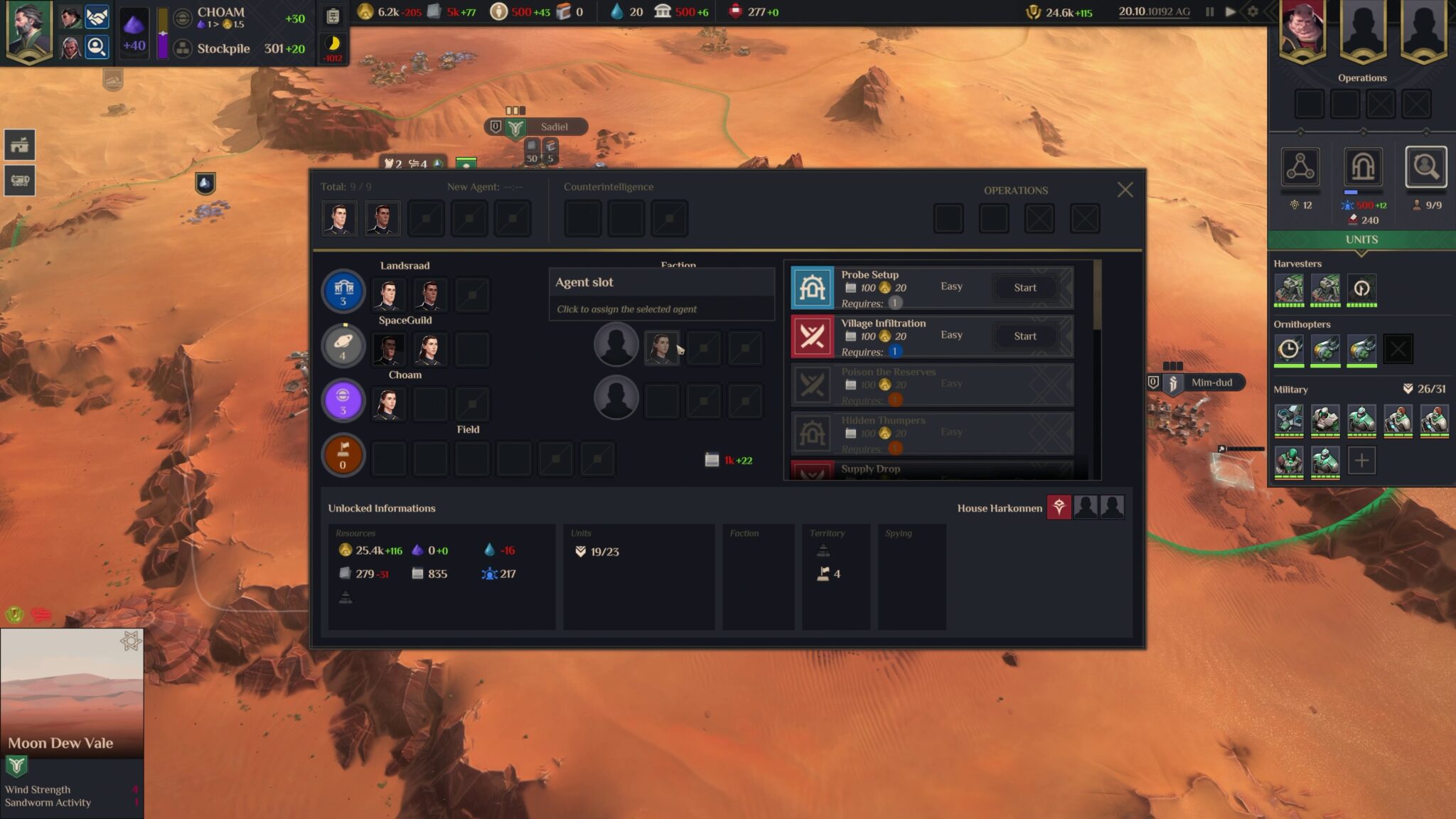
This victory after five hours also cannot be achieved by military means without exception. Of course, we can completely sweep the other factions off the planet and then roll around in all the spice deposits of Arrakis, grinning thievishly, but that doesn’t always require soldiers.
Besides total annihilation, a faction is also considered eliminated if we succeed in an extremely resource-intensive assassination action with an agent. Diplomatic victory is even less bloody. With enough influence, we can finally force the other faction in the Landsraad to appoint our ruler as governor of Arrakis.
Oh, and there is also a point victory, which is called hegemony here. But who wants to win on points!?
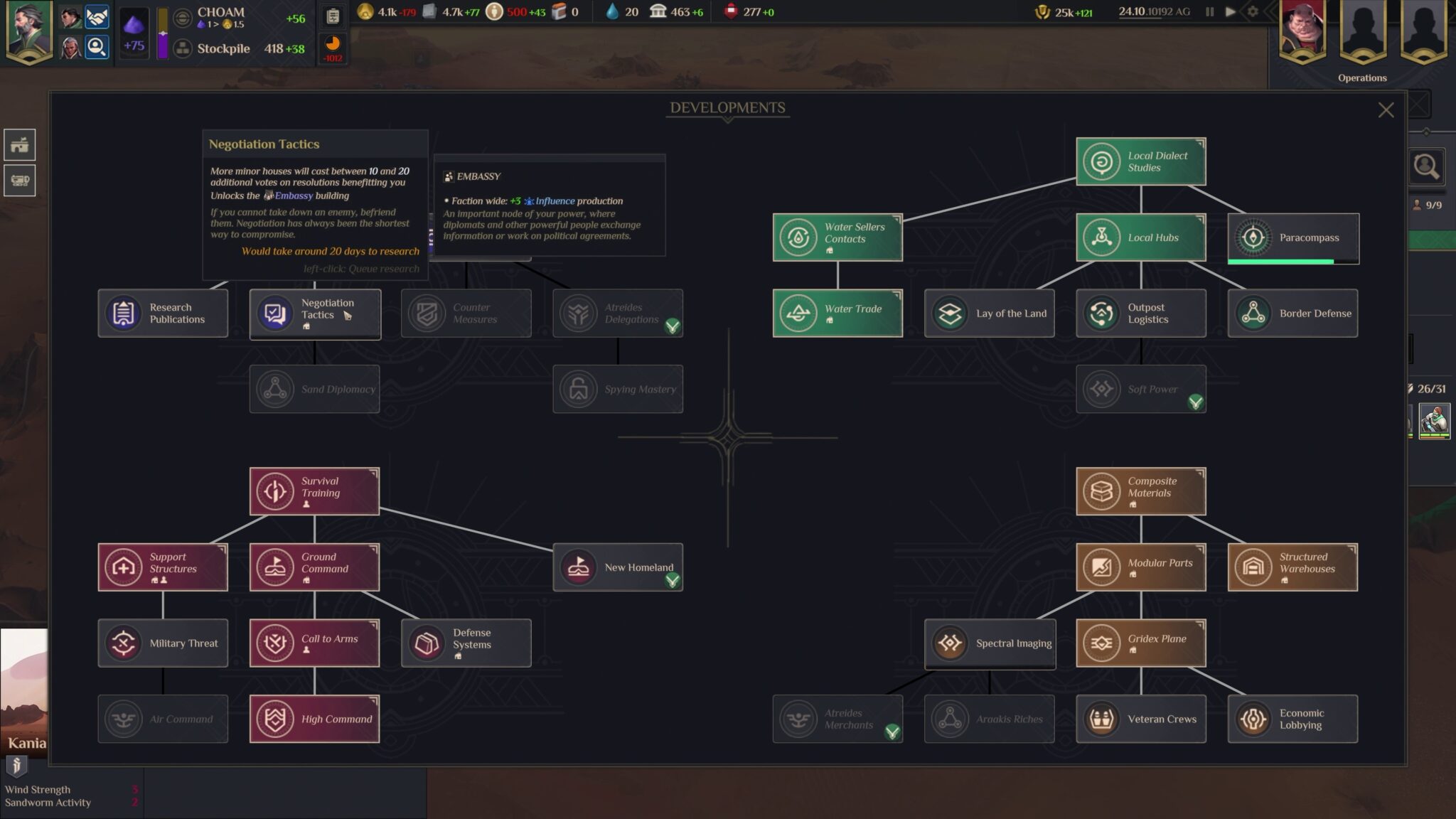
Dry as the desert
This mix of real-time and global strategy has its appeal, no question about it. After all, there are people who might not want to sacrifice their entire weekend for a single game of Civilization. And those who know Dune will certainly enjoy all the political subtleties in the background. This world is often about more than war and spice.
Judging by the gameplay scenes, however, there is still a danger that diplomacy, trade and espionage in their current form will not be enough to generate tension. Because Dune: Spice Wars still seems very dry. This is not only due to the somewhat unspectacular battles, but also the somewhat dull land raiding and espionage actions do not necessarily steer our paracompass in the direction of game fun.
But we can’t fully assess that yet. For one thing, the interface is still being reworked, and for another, such a strategy game has to be developed independently before we can form a judgement. Maybe military, base building, land raiding and espionage interact so well that the strategist in us doesn’t want to stop.
Just to find out, we definitely want to stay with the game. The second reason is simply that Spice Wars is such an interesting mixture of genres. We’d love to know if the concept really works.
Editor’s verdict
I’m still in the process of exploring the Dune universe a little. So far, I haven’t had the opportunity to do so. After all, Dune had its cultural peak before I was born. So, to my shame, I must also confess that I have never played Dune 2. But I am slowly catching up on it. The new film adaptation from last year also came in handy.
Spice Wars is my next opportunity. I’m keen to understand what it is about this universe that fascinates fans so much. I can already see why some might have preferred a pure RTS to this rather unusual mix of global strategy mechanics. But Dune 2 isn’t famous to this day because it carried on the RTS conventions of 1992. It reoriented itself and created its own subgenre.
Whether Spice Wars succeeds in doing something similar – well, you can safely doubt it. Somehow, though, the idea of playing it myself appeals to me. To find out whether global strategy can really be reduced to a maximum of five hours. So far, my impression is that it seems too dry for such fast-paced games. But hey, that somehow fits the setting very well.


